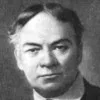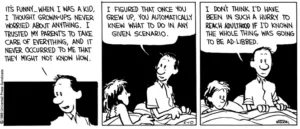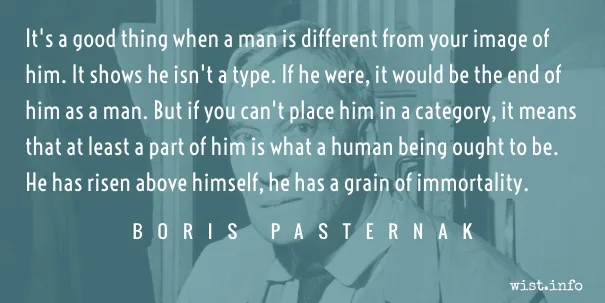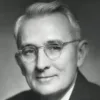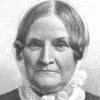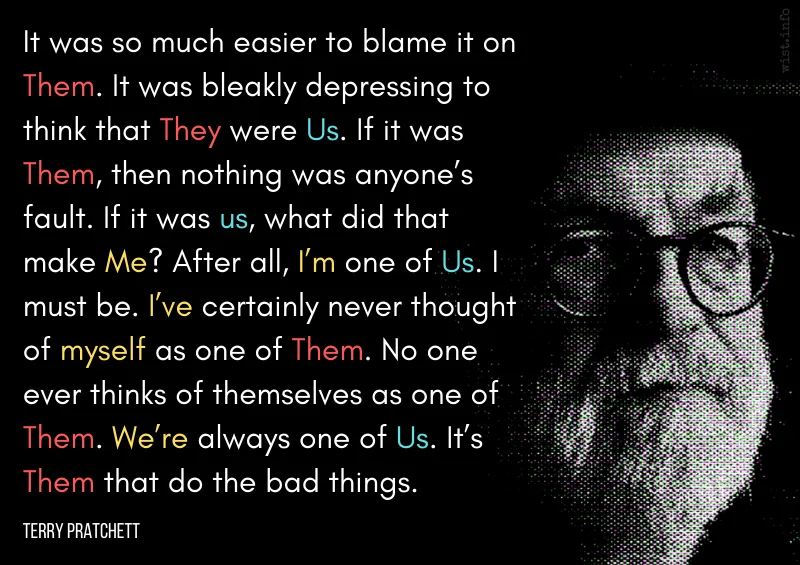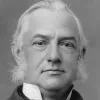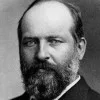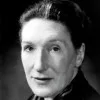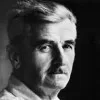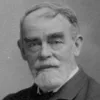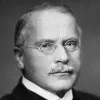Attempt nothing, for which thou darest not pray to God.
Thomas Fuller (1654-1734) English physician, preacher, aphorist, writer
Introductio ad Prudentiam, Vol. 1, # 87 (1725)
(Source)
Quotations about:
perspective
Note not all quotations have been tagged, so Search may find additional quotes on this topic.
He that would have a short Lent, let him borrow Money to be repaid at Easter.
Benjamin Franklin (1706-1790) American statesman, scientist, philosopher, aphorist
Poor Richard (1738 ed.)
(Source)
It is easy to tell the toiler
How best he can carry his pack,
But no one can rate a burden’s weight
Until it has been on his back.Ella Wheeler Wilcox (1850-1919) American author, poet, temperance advocate, spiritualist
Poem (1896), “Preaching vs. Practice,” st. 4, Custer and Other Poems
(Source)
OBSTINATE, adj. Inaccessible to the truth as it is manifest in the splendor and stress of our advocacy.
Ambrose Bierce (1842-1914?) American writer and journalist
“Obstinate,” The Devil’s Dictionary (1911)
(Source)
Originally published in the "Cynic's Word Book" column in the New York American (1904-10-05) and the "Cynic's Dictionary" column in the San Francisco Examiner (1904-10-31).
Philosophy iz a fust rate thing to hav, but yu kant alleviate the gout with it, unless the gout happens to be on sum other phellow.
[Philosophy is a first rate thing to have, but you can’t alleviate the gout with it, unless the gout happens to be on some other fellow.]
Josh Billings (1818-1885) American humorist, aphorist [pseud. of Henry Wheeler Shaw]
Josh Billings’ Trump Kards, ch. 2 “Grand Pa” (1874)
(Source)
LOQUACITY, n. A disorder which renders the sufferer unable to curb his tongue when you wish to talk.
Ambrose Bierce (1842-1914?) American writer and journalist
“Loquacity,” The Devil’s Dictionary (1911)
(Source)
Originally published in the "Cynic's Dictionary" column in the San Francisco Examiner (1888-04-29).
The sword of God falls neither swift nor slow
Save to those eager to see justice done,
Or who in guilt and fear await the blow.[La spada di qua sù non taglia in fretta
né tardo, ma’ ch’al parer di colui
che disïando o temendo l’aspetta.]Dante Alighieri (1265-1321) Italian poet
The Divine Comedy [Divina Commedia], Book 3 “Paradiso,” Canto 22 l. 16ff (22.16-18) (1320) [tr. Sayers/Reynolds (1962)]
(Source)
Speaking of the sword of God's judgment, which comes too slowly for the innocent and just, but too quickly for the fearful guilty.
(Source (Italian)). Alternate translations:But sooner far,
Indignant Man the fiery lance had hurl'd,
In hasly zeal, to scourge a sinful world,
While guilt presumes that Heav'n the stroke may spare.
[tr. Boyd (1802), st. 4]The sword of heav’n is not in haste to smite,
Nor yet doth linger, save unto his seeming,
Who in desire or fear doth look for it.
[tr. Cary (1814)]The sword above is not in haste to cut,
Nor yet delays -- unless till he appear,
Who now expects it in desire or fear.
[tr. Bannerman (1850)]The sword above here smiteth not in haste
Nor tardily, howe'er it seem to him
Who fearing or desiring waits for it.
[tr. Longfellow (1867)]The sword of this high place cuts not in haste, nor slow, save to the seeming of him who is awaiting it either in desire or fear.
[tr. Butler (1885)]Neither in haste nor tardily doth sheer
The sword of Heaven, except as he may deem,
Who waits for it with longing or with fear.
[tr. Minchin (1885)]The sword of here on high cuts not in haste, nor slow, save to the seeming of him who, desiring, or fearing, awaits it.
[tr. Norton (1892)]The sword from here above cleaveth not in haste nor tardy, save to his deeming who in longing or in fear awaiteth it.
[tr. Wicksteed (1899)]The sword here above does not strike in haste or tardily, except as it seems to him that awaits it with desire or with fear.
[tr. Sinclair (1939)]The sword cuts not in haste which smites from here
On high, nor tarrieth, save as those conceive
Who wait for it in longing or in fear.
[tr. Binyon (1943)]The sword of Heaven is not too soon dyed red,
nor yet too late -- except as its vengeance seems
to those who wait for it in hope or dread.
[tr. Ciardi (1970)]The sword of here on high cuts not in haste
nor tardily, save to his deeming who
in longing or in fear awaits it.
[tr. Singleton (1975)]The sword which strikes from here will never strike
In haste or too late, though it appears so
To those who hanker after it, or fear it.
[tr. Sisson (1981)]The sword that strikes from Heaven's height is neither
hasty nor slow, except as it appears
to him who waits for it -- who longs or fears.
[tr. Mandelbaum (1984)]The sword of Here on High cuts not in haste
nor is it slow -- except as it appears
to those who wait for it in hope or fear.
[tr. Musa (1984)]The sword of heaven never cuts in haste nor late, except as seems to one who awaits it with either desire or fear.
[tr. Durling (2011)]The sword from above does not strike hastily, or reluctantly, except to his perception, who waits for it with longing, or in fear.
[tr. Kline (2002)]That sword raised here will strike, though not in haste,
nor yet too slow, save only in the view
of those who wait in fear or keen desire.
[tr. Kirkpatrick (2007)]The sword of Heaven never cuts in haste
nor in delay, but to the one who waits
in longing or in fear, it well may seem so.
[tr. Hollander/Hollander (2007)]The sword
Of God, swung from on high, slices neither
Too soon or too late, except in the mind of one
Awaiting death either in fear or desire.
[tr. Raffel (2010)]
I believe that the truth about any subject only comes when all sides of the story are put together, and all their different meanings make one new one.
Alice Walker (b. 1944) American writer, activist
“Beyond the Peacock: The Reconstruction of Flannery O’Connor,” In Search of Our Mothers’ Gardens (1983)
(Source)
If your anger decreases with time, you did injustice; if it increases, you suffered injustice.
Nassim Nicholas Taleb (b. 1960) Lebanese-American essayist, statistician, risk analyst, aphorist
The Bed of Procrustes: Philosophical and Practical Aphorisms, “Preludes” (2010)
(Source)
Think of our world as it looks from that rocket that is heading toward Mars. It is like a child’s globe, hanging in space, the continents stuck to its side like colored maps. We are all fellow passengers on a dot of earth. And each of us, in the span of time, has really only a moment among our companions.
How incredible it is that in this fragile existence we should hate and destroy one another. There are possibilities enough for all who will abandon mastery over others to pursue mastery over nature. There is world enough for all to seek their happiness in their own way.Lyndon B. Johnson (1908-1973) American politician, educator, US President (1963-69)
Speech (1965-01-20), Inaugural Address, Washington, D. C.
(Source)
A book is a version of the world. If you do not like it, ignore it; or offer your own version in return.
Salman Rushdie (b. 1947) Indian novelist
“In Good Faith” (1990), Imaginary Homelands: Essays and Criticism, 1981-1991 (1992)
(Source)
The man who is possessed of wealth, who lolls on his sofa or rolls in his carriage, cannot judge the wants or feelings of the day-laborer.
James Madison (1751-1836) American statesman, political theorist, US President (1809-17)
Comment (1787-06-26), US Constitutional Convention, Philadelphia
(Source)
During debate on the length of terms for US Senators.
As quoted in Robert Yates, Notes of the Secret Debates of the Federal Convention of 1787 . Yates was a delegate from New York to the Constitutional Convention, and later served as state Chief Justice.
After all, brevity is the soul of wit! There is endless merit in a man’s knowing when to have done. The stupidest man, if he will be brief in proportion, may fairly claim some hearing from us: he too, the stupidest man, has seen something, heard something, which is his own, distinctly peculiar, never seen or heard by any man in this world before; let him tell us that, and if it were possible, nothing more than that, — he , brief in proportion shall be welcome!
Thomas Carlyle (1795-1881) Scottish essayist and historian
Essay (1843-07), “Dr. Francia,” Foreign Quarterly Review, No. 62, Art. 12
(Source)
Reviewing Rengger and Longchamp, Essai Historique sur la Révolution de Paraguay , et le Gouvernement Dictatorial du Docteur Francia (1827), et al.
Reprinted in Carlyle, Critical and Miscellaneous Essays (1845).
See Shakespeare.
In the four quarters of the globe, who reads an American book? Or goes to an American play? or looks at an American picture or statue? What does the world yet owe to American physicians or surgeons? What new substances have their chemists discovered? Or what old ones have they advanced? What new constellations have been discovered by the telescopes of Americans? Who drinks out of American glasses? Or eats from American plates? Or wears American coats or gowns? or sleeps in American blankets? Finally, under which of the old tyrannical governments of Europe is every sixth man a slave, whom his fellow-creatures may buy and sell and torture?
Sydney Smith (1771-1845) English clergyman, essayist, wit
Edinburgh Review, No. 65, Article 3 (1820-01)
(Source)
Review of Adam Seybert, Statistical Annals of the United States of America (1818).
Let Tom and Jane not think, because they see
one man is picking pockets and another
is offering all his goods to charity,
that they can judge their neighbors with God’s eyes:
for the pious man may fall, and the thief may rise.[Non creda donna Berta e ser Martino,
per vedere un furare, altro offerere,
vederli dentro al consiglio divino;
ché quel può surgere, e quel può cadere.]Dante Alighieri (1265-1321) Italian poet
The Divine Comedy [Divina Commedia], Book 3 “Paradiso,” Canto 13, l. 139ff (13.139-142) [Thomas Aquinas] (1320) [tr. Ciardi (1970)]
(Source)
Berta and Martino were common names in Dante's era, and stand in for "ordinary people" (with a sarcastic hint of pretension by giving them minor titles). Most translators use a straight translation of the names to Bertha and Martin; others change them to something more modern to reflect their everyman status.
(Source (Italian)). Alternate translations:The pious man
May fail ; the Penitent, altho' by spoil
He liv'd, may purchase Heav'n by arduous toil
Ere death: it is not our's their fate to scan.
[tr. Boyd (1802), st. 24]Seeing one steal,
Another bring, his offering to the priest,
Let not Dame Bertha and Sir Martin thence
Into heav’n’s counsels deem that they can pry:
For one of these may rise, the other fall.
[tr. Cary (1814)]Let not Nun Bertha and Saint Martin try,
Seeing one offer, and another steal,
The counsel of the heaven from that to tell:
For this may rise again, and that may fall.
[tr. Bannerman (1850)]Let not Dame Bertha nor Ser Martin think,
Seeing one steal, another offering make,
To see them in the arbitrament divine;
For one may rise, and fall the other may.
[tr. Longfellow (1867)]Let not Dame Bertha and Master Martin deem, for seeing one steal, another make offerings, that they are seeing them within the Divine counsel; for that one may be exalted and this may fall.
[tr. Butler (1885)]Let not Dame Bertha nor Sir Martin deem,
Because they see one rob, another pray,
That they can pry within the will supreme;
For one can rise, and one can fall away.
[tr. Minchin (1885)]Let not dame Bertha and master Martin, seeing one rob, and another make offering, believe to see them within the Divine counsel: for the one may rise and the other may fall.
[tr. Norton (1892)]Let not Dame Bertha or Squire Martin think, if they perceive one steal and one make offering, they therefore see them as in the divine counsel; for the one yet may rise and the other fall.
[tr. Wicksteed (1899)]Let not Dame Bertha and Master Martin, when they see one rob and another make an offering, think they see them within the divine counsel; for the one may rise and the other fall.
[tr. Sinclair (1939)]Let no Dame Bertha or Sir Martin deem,
Because they see one steal and one give all,
They see as divine forethought seéth them;
For the one yet may rise and the other fall.
[tr. Binyon (1943)]Let Jack and Jill not think they see so far
That, seeing this man pious, that a thief,
They see them such as in God's sight they are,
For one may rise, the other come to grief.
[tr. Sayers/Reynolds (1962)]Let not dame Bertha and squire Martin, if they see one steal and one make offering, believe to see them within the Divine Counsel: for the one may rise and the other may fall.
[tr. Singleton (1975)]Let not every Bertha and Martin think
Because they see one a thief, another respectable,
That they see how they are in the eyes of God;
For one may rise, and the other one may fall.
[tr. Sisson (1981)]Let not Dame Bertha or Master Martin think
that they have shared God’s Counsel when they see
one rob and see another who donates:
the last may fall, the other may be saved.
[tr. Mandelbaum (1984)]No Mr. or Miss Know-It-All should think,
when they see one man steal and one give alms
that they are seeing them through God's own eyes,
for one may yet rise up, the other fall.
[tr. Musa (1984)]Let not dame Bertha and messer Martin believe, because they see one stealing, another offering, that they see them within God’s counsel,
for that one can rise up, and this one can fall.
[tr. Durling (2011)]Do not let Jack and Jill think, that if they see someone steal or another make offering they therefore see them as Divine Wisdom does, since the one may still rise, and the other fall.
[tr. Kline (2002)]And so when Mrs Smith and Mr Jones
see one man steal, another offer alms,
don’t let them think they see this in God’s plan.
The thief may rise, the other take a fall.
[tr. Kirkpatrick (2007)]Let not Dame Bertha and Master Martin,
when they see one steal and another offer alms,
think that they behold them with God's wisdom,
for the first may still rise up, the other fall.
[tr. Hollander/Hollander (2007)]Let not Mrs. Judy and Mister John,
Seeing one man steal but another before
The altar with offerings, think one is sinful,
The other's in Heaven -- for people rise and fall.
[tr. Raffel (2010)]
‘T is strange — but true; for truth is always strange;
Stranger than fiction; if it could be told,
How much would novels gain by the exchange!
How differently the world would men behold!George Gordon, Lord Byron (1788-1824) English poet
Don Juan, Canto 14, st. 101 (1823)
(Source)
Apparent origin of the phrase "Truth is stranger than fiction."
The way the neurotic sees it: bars on his door mean that he’s locked in; bars on your door mean that he’s locked out.
Mignon McLaughlin (1913-1983) American journalist and author
The Second Neurotic’s Notebook, ch. 5 (1966)
(Source)
Let us have done with vain regrets and longings for the days that never will be ours again. Our work lies in front, not behind us; and “Forward!” is our motto. Let us not sit with folded hands, gazing upon the past as if it were the building; it is but the foundation. Let us not waste heart and life thinking of what might have been and forgetting the may be that lies before us. Opportunities flit by while we sit regretting the chances we have lost, and the happiness that comes to us we heed not, because of the happiness that is gone.
Jerome K. Jerome (1859-1927) English writer, humorist [Jerome Klapka Jerome]
Idle Thoughts of an Idle Fellow, “On Memory” (1886)
(Source)
First published in Home Chimes (1885-09-26).
Thirst, hunger, and nakedness, are positive evils: but wealth is relative; and a prince who would be rich in a private station, may be exposed by the increase of his wants to all the anxiety and bitterness of poverty.
Edward Gibbon (1737-1794) English historian
The History of the Decline and Fall of the Roman Empire, ch. 61 (1776-88)
(Source)
You dull your own perceptions
with false imaginings and do not grasp
what would be clear but for your preconceptions.
[Tu stesso ti fai grosso
col falso imaginar, sì che non vedi
ciò che vedresti se l’avessi scosso.]Dante Alighieri (1265-1321) Italian poet
The Divine Comedy [Divina Commedia], Book 3 “Paradiso,” Canto 1, l. 88ff (1.88-90) [Beatrice] (1320) [tr. Ciardi (1970)]
(Source)
Dante's beloved Beatrice greets him for the first time since his arrival in Paradise, chiding him for his terrestrial assumptions of what he's seeing.(Source (Italian)). Alternate translations:False Forms deceive thy optics. Son of Man!
With shadowy objects which eclipse the true.
[tr. Boyd (1802), st. 20]With false imagination thou thyself
Mak’st dull, so that thou seest not the thing,
Which thou hadst seen, had that been shaken off.
[tr. Cary (1814)]Imagination false
Hath made thee dull, so that thou canst not see
That thou might'st, hadst thou looked diligently.
[tr. Bannerman (1850)]Thou makest thyself so dull
With false imagining, that thou seest not
What thou wouldst see if thou hadst shaken it off.
[tr. Longfellow (1867)]Thou thyself makest thyself gross with false imagining, so that thou seest not that which thou wouldest have seen, if thou hadst shaken it off.
[tr. Butler (1885)]Thyself thou makest blind
With thy false fancy, that thou canst not see
What thou wouldst see, if this were thrown behind.
[tr. Minchin (1885)]Thou thyself makest thyself dull with false imagining, so that thou seest not what thou wouldst see, if thou hadst shaken it off.
[tr. Norton (1892)]Thou thyself makest thyself dense Earthly with false imagining, and so thou seest not what heavenly thou wouldst see, if thou hadst cast it off.
[tr. Wicksteed (1899)]Thou dullest thine own wit
With false imagination, nor preceivest
That which thou wouldst perceive, being rid of it.
[tr. Sayers/Reynolds (1962)]Thou makest thyself dull with false fancies so that thou canst not see as thou wouldst if thou hadst cast them off.
[tr. Sinclair (1939)]Thou makest thyself dense of wit
With false fancy, so that thou dost not see
What thou would’st see, wert thou but rid of it.
[tr. Binyon (1943)]You make yourself dull with false imagining, so that you do not see what you would see had you cast it off.
[tr. Singleton (1975)]You are making yourself stupid
By imagining what isn’t, so that you do not
See what you would if you could shake that off.
[tr. Sisson (1981)]You make yourself
obtuse with false imagining; you can
not see what you would see if you dispelled it.
[tr. Mandelbaum (1984)]You have yourself to blame for burdening
your mind with misconceptions that prevent
from seeing clearly what you might have seen.
[tr. Musa (1984)]You are making yourself swell
with false imagining, so that you do not see
what shaking it off would show.
[tr. Durling (2011)]You make yourself stupid with false imaginings, and so you do not see, what you would see, if you discarded them.
[tr. Kline (2002)]With false imaginings
you make yourself so dull you fail to see
what, shaking off this cloud, you’d see quite well.
[tr. Kirkpatrick (2007)]You make yourself dull-witted
with false notions, so that you cannot see
what you would understand, had you but cast them off.
[tr. Hollander/Hollander (2007)]You're overwhelming yourself with false
And foolish conjuring, preventing what your eyes
Would see if you did not struggle so hard for triumph.
[tr. Raffel (2010)]You get all mixed up
By sticking with a figment of your imagination, so
You don’t see what you would see if you shook it off.
[tr. Bang (2021)]
Someday we will regard our children not as creatures to manipulate or to change but rather as messengers from a world we once deeply knew, but which we have long since forgotten, who can reveal to us more about the true secrets of life, and also our own lives, than our parents were ever able to.
Alice Miller (1923-2010) Polish-Swiss psychologist, psychoanalyst, philosopher
For Your Own Good [Am Anfang war Erziehung], “Preface to the American Edition” (1980) [tr. Hannum/Hannum (1983)]
(Source)
CALVIN’S DAD: It’s funny … when I was a kid, I thought grown-ups never worried about anything. I trusted my parents to take care of everything, and it never occurred to me that they might not know how. I figured that once you grew up, you automatically knew what to do in any given scenario. I don’t think I would have been in such a hurry to reach adulthood if I’d know the whole thing was going to be ad-libbed.
Bill Watterson (b. 1958) American cartoonist
Calvin and Hobbes (1989-05-10)
(Source)
After their house has been burgled.
ADRIANA: A wretched soul bruised with adversity
We bid be quiet when we hear it cry,
But were we burdened with like weight of pain,
As much or more we should ourselves complain.William Shakespeare (1564-1616) English dramatist and poet
Comedy of Errors, Act 2, sc. 1, l. 34ff (2.1.34-37) (1594)
(Source)
It is customary to suppose that, if a belief is widespread, there must be something reasonable about it. I do not think this view can be held by anyone who has studied history. Practically all the beliefs of savages are absurd. In early civilizations there may be as much as one percent for which there is something to be said. In our own day …. But at this point I must be careful. We all know that there are absurd beliefs in Soviet Russia. If we are Protestants, we know that there are absurd beliefs among Catholics. If we are Catholics, we know that there are absurd beliefs among Protestants. If we are Conservatives, we are amazed by the superstitions to be found in the Labour Party. If we are Socialists, we are aghast at the credulity of Conservatives. I do not know, dear reader, what your beliefs may be, but whatever they may be, you must concede that nine-tenths of the beliefs of nine-tenths of mankind are totally irrational. The beliefs in question are, of course, those which you do not hold.
Bertrand Russell (1872-1970) English mathematician and philosopher
“Is There a God?” (1952)
(Source)
Essay commissioned by Illustrated magazine in 1952, but never published there. First publication in Russell, Last Philosophical Testament, 1943-68 (1997) [ed. Slater/Köllner].
LEONATO: No, no, t’is all men’s office to speak patience
To those that wring under the load of sorrow;
But no man’s virtue nor sufficiency,
To be so moral, when he shall endure
The like himself.William Shakespeare (1564-1616) English dramatist and poet
Much Ado About Nothing, Act 5, sc. 1, l. 29ff (5.1.29-33) (1598)
(Source)
And in truth, of course, I’m not just 60 — I’m twelve, I’m 23, I’m 37, I’m 42, I’m 18. I’m every age I’ve ever been. Depending on what day of the week it is and what the situation calls for at the moment.
[Und in Wahrheit bin ich natürlich nicht nur 60 – ich bin zwölf, ich bin 23, ich bin 37, ich bin 42, ich bin 18. Ich habe jedes Alter, das ich je gehabt habe. Je nachdem, welcher Wochentag ist und was die Situation gerade erfordert.]
William Martin "Billy" Joel (b. 1949) American singer, songwriter, pianist
“Ohne die Nazis hätte es Billy Joel nie gegeben,” Die Welt (2009-05-10)
This interview is published in German, but in it Joel comments he only knows a bit of the language (his father was a Jewish refugee from Germany before WW2), so it was likely conducted in English. The German version is from the article. The English version is from Wikiquote (source unknown), which titles the article "Without the Nazis, there wouldn't have been Billy Joel."
You must admit that it might be confusing to have one brain and two bodies.
Edgar Rice Burroughs (1875-1950) American writer
Synthetic Men of Mars, ch. 14 [Vor Daj] (1940)
(Source)
I am old now, or at least, I am no longer young, and everything I see reminds me of something else I’ve seen, such that I see nothing for the first time. A bonny girl, her hair fiery red, reminds me only of another hundred such lasses, and their mothers, and what they were as they grew, and what they looked like when they died. It is the curse of age, that all things are reflections of other things.
Neil Gaiman (b. 1960) British author, screenwriter, fabulist
“The Truth Is a Cave in the Black Mountains …”, Trigger Warning (2015)
(Source)
HARRIS: I call it performance art, but my friend Ariel calls it wasting time. History will decide.
Steve Martin (b. 1945) American comedian, actor, writer, producer, musician
L. A. Story (1991)
(Source)
It has been one of the defects of theologians at all times to over-estimate the importance of our planet. No doubt this was natural enough in the days before Copernicus when it was thought that the heavens revolve about the earth. But since Copernicus and still more since the modern exploration of distant regions, this pre-occupation with the earth has become rather parochial. If the universe had a Creator, it is hardly reasonable to suppose that He was specially interested in our little corner. And, if He was not, His values must have been different from ours, since in the immense majority of regions life is impossible.
Bertrand Russell (1872-1970) English mathematician and philosopher
“Is There a God?” (1952)
(Source)
Essay commissioned by Illustrated magazine in 1952, but never published there. First publication in Russell, Last Philosophical Testament, 1943-68 (1997) [ed. Slater/Köllner].
BENEDICK: Well, everyone can master a grief but he that has it.
William Shakespeare (1564-1616) English dramatist and poet
Much Ado About Nothing, Act 3, sc. 2, l. 27ff (3.2.27-28) (1598)
(Source)
For the complete life, the perfect pattern, includes old age as well as youth and maturity. The beauty of the morning and the radiance of noon are good, but it would be a very silly person who drew the curtains and turned on the light in order to shut out the tranquility of the evening. Old age has its pleasures, which, though different, are not less than the pleasures of youth.
W. Somerset Maugham (1874-1965) English novelist and playwright [William Somerset Maugham]
The Summing Up, ch. 73 (1938)
(Source)
In truth, poverty is an anomaly to rich people. It is very difficult to make out why people who want dinner do not ring the bell.
Walter Bagehot (1826-1877) British businessman, essayist, journalist
“The Waverley Novels,” National Review (1858-04)
(Source)
A review of Sir Walter Scott's very popular and lengthy book series of that name, which includes his (today) most famous, Ivanhoe.
It’s a good thing when a man is different from your image of him. It shows he isn’t a type. If he were, it would be the end of him as a man. But if you can’t place him in a category, it means that at least a part of him is what a human being ought to be. He has risen above himself, he has a grain of immortality.
Boris Pasternak (1890-1960) Russian poet, novelist, and literary translator
Doctor Zhivago [До́ктор Жива́го], Part 2, ch. 9 “Varykino,” sec. 4 [Yuri] (1955) [tr. Hayward & Harari (1958), US ed.]
(Source)
Alternate translations:It’s a good thing when a man is different from your image of him. It shows he isn’t a type. If he were, it would be the end of him as a man. But if you can’t place him in a category, it means that at least a part of him is what a human being ought to be. He has a grain of immortality.
[tr. Hayward & Harari (1958), UK ed.]It’s good when a man deceives your expectations, when he doesn’t correspond to the preconceived notion of him. To belong to a type is the end of a man, his condemnation. If he doesn’t fall under any category, if he’s not representative, half of what’s demanded of him is there. He’s free of himself, he has achieved a grain of immortality.
[tr. Pevear & Volokhonsky (2010)]
I want to visit Memory Lane, I don’t want to live there.
Letty Cottin Pogrebin (b. 1939) American author, journalist, lecturer, social activist
Deborah, Golda, and Me, ch. 1 (1991)
(Source)
History is the only consolation left to the peoples, for it teaches them that their ancestors were as unhappy as themselves, or more unhappy.
[En effet, il ne reste guère, pour consoler les peuples, que de leur apprendre que leurs ancêtres ont été aussi malheureux, ou plus malheureux.]Nicolas Chamfort (1741-1794) French writer, epigrammist (b. Nicolas-Sébastien Roch)
Products of Perfected Civilization [Produits de la Civilisation Perfectionée], Part 1 “Maxims and Thoughts [Maximes et Pensées],” ch. 8, ¶ 474 (1795) [tr. Mathers (1926)]
(Source)
(Source (French)). Alternate translations:In fact there is no longer any way of consoling the people except by teaching them that their forebears were as wretched as they are, or more so.
[tr. Merwin (1969)]Indeed, if one is to console the peoples of the world there is little else one can do but teach them that their ancestors were just as wretched, or more so.
[tr. Pearson (1973)]In effect, there is nearly no way to console peoples except to tell them that their ancestors were as unfortunate or more unfortunate than they are.
[tr. Siniscalchi (1994), ¶ 473]
I don’t know ov a better kure for sorrow than tew pity sum boddy else.
[I don’t know of a better cure for sorrow than to pity somebody else.]
Wedlock, as old Men note, hath likened been,
Unto a publick Crowd or common Rout;
Where those that are without would fain get in,
And those that are within would fain get out.
You never know what worse luck your bad luck has saved you from.
Cormac McCarthy (1933-2023) American novelist, playwright, screenwriter
No Country for Old Men (2005)
(Source)
Childhood is the world of miracle and wonder; as if creation rose, bathed in light out of the darkness, utterly new and fresh and astonishing. The end of childhood is when things cease to astonish us. When the world seems familiar, when one has got used to existence, one has become adult. The brave new world, the wonderland has grown trite and commonplace.
[L’enfance c’est le monde du miracle ou du merveilleux: c’est comme si la creation surgissait, lumineuse, de la nuit, toute neuve et toute fraîche, et tout étonnante. Il n’y a plus d’enfance à partir du moment où les choses ne sont plus étonnantes. Lorsque le monde vous semble «déja vu», lorsqu’on s’est habitué à l’existence, on devient adulte. Le monde de la féerie, la merveille neuve se fait banalité, cliché.]Eugène Ionesco (1912-1994) Romanian-French dramatist
Fragments of a Journal [Journal en Miettes], “The Crisis of Language” (1967) [tr. Stewart (1968)]
(Source)
But we are so blind to our own shortcomings, so wide awake to those of others. Everything that happens to us is always the other person’s fault. Angelina would have gone on loving Edwin forever and ever and ever if only Edwin had not grown so strange and different. Edwin would have adored Angelina through eternity if Angelina had only remained the same as when he first adored her.
It is a cheerless hour for you both when the lamp of love has gone out and the fire of affection is not yet lit, and you have to grope about in the cold, raw dawn of life to kindle it. God grant it catches light before the day is too far spent. Many sit shivering by the dead coals till night come.Jerome K. Jerome (1859-1927) English writer, humorist [Jerome Klapka Jerome]
Idle Thoughts of an Idle Fellow, “On Being in Love” (1886)
(Source)
And what is shameful if those who do it don’t think it so?
[τί δ’ αἰσχρὸν ἢν μὴ τοῖσι χρωμένοις δοκῇ]
Euripides (485?-406? BC) Greek tragic dramatist
Æolus [Αἴολος], frag. 19 (TGF) [tr. Aleator (2012)]
(Source)
This bit of moral relativism (likely coming from Macareus, the son of Aeolus, who committed incest with his sister, Canace) continues to provoke commentary, thus varied translations. Aristophanes includes a reference to this line in his The Frogs.
Nauck frag. 19, Barnes frag. 5, Musgrave frag. 1. (Source (Greek)). Alternate translations:But what is base, if it appear not base
To those who practice what their soul approves?
[tr. Wodhull (1809)]What is shameful, if it does not seem to be so to those who do it?
[Source]What's wrong if they who do it think not so?
[Source (1902)]Why shameful, if it does not seem so to those who practice it?
[Source (2018)]
If you reside in a state where you attain your legal majority while still in your teens, pretend that you don’t. There isn’t an adult alive who would want to be contractually bound by a decision he came to at the age of nineteen.
Usbek, it seems to me that we always judge things by secretly relating them to our own concerns. I am not surprised that black men envision the devil as being a brilliant white color, and that they picture their gods as being black as coal — nor that certain peoples picture Venus as having breasts that hang down to her thighs — nor that all idolaters have always pictured their gods in human form, ascribing to them all their own predilections. It has been well said that if triangles had a god, they would imagine him as having three sides.
[Il me semble, Usbek, que nous ne jugeons jamais des choses que par un retour secret que nous faisons sur nous-mêmes. Je ne suis pas surpris que les nègres peignent le diable d’une blancheur éblouissante et leurs dieux noirs comme du charbon ; que la Vénus de certains peuples ait des mamelles qui lui pendent jusqu’aux cuisses ; et qu’enfin tous les idolâtres aient représenté leurs dieux avec une figure humaine, et leur aient fait part de toutes leurs inclinations. On a dit fort bien que, si les triangles faisoient un dieu, ils lui donneroient trois côtés.]
Charles-Lewis de Secondat, Baron de Montesquieu (1689-1755) French political philosopher
Persian Letters [Lettres Persanes], Letter 59, Rica to Usbek (1721) [tr. MacKenzie (2014)]
(Source)
The triangles reference is often attributed directly to Montesquieu, though it's referenced here as having another origin. It is sometimes cited as a Jewish or Yiddish proverb.
Some early editions leave out the triangle metaphor altogether, thinking it alludes to the Trinity.
See also Voltaire.
(Source (French)). Alternate translations:It is my Opinion, Usbek, that we never judge of Things but with a private View to our selves. I am not surprised that the Negroes shou'd paint the Devil of the most glaring Whiteness, and their Gods as black as a Coal; that the Venus of some Nations shou'd have Breasts hanging down to her very Thighs; and lastly, that all Idolaters have represented their Gods with a Human Figure, and given them all their own Inclinations. It has been said with good Reason that if the Triangles were to make a God they wou'd give him three Sides.
[tr. Ozell (1736), No. 57]It appears to me, Usbek, that we never judge of things but with a private view to ourselves. I do not wonder that the Negroes paint the devil in the most glaring whiteness, and their gods as black as a coal; that the Venus of some nations should be represented with breasts pendent to her thighs; nor indeed that all idolaters have made their gods of human figures, and have ascribed to them all their own passions.
[tr. Floyd (1762)]It seems to me, Usbek, that our opinions are always influenced by a secret application to ourselves. I am not surprised that Negroes paint the devil with a complexion of dazzling whiteness, and their gods as black as coal; that the Venus of certain races has breasts that hang down to her thighs; and finally, that all idolaters have represented their gods in the likeness of men, and have ascribed to them all their own passions. It has been very well said, that if triangles were to make to themselves gods, they would give them three sides.
[tr. Davidson (1891)]It seems to me, Usbek, that our judgment of things is always controlled by the secret influence they have had on our own actions. I am not surprised that the negroes paint the devil with a face of dazzling whiteness, and their gods as black as coal; that the Venus of certain tribes has breasts that hang down to her thighs; and, in fine, that all nations have represented their gods in the human form, and have supposed them to be imbued with their own passions. It has been very well said that if triangles were to make a god for themselves, they would give him three sides.
[tr. Betts (1897)]It seems to me, Usbek, that we judge things only by applying them secretly to ourselves. I am not surprised that Negroes paint the devil in dazzling white and their gods in carbon black; or that the Venus of certain peoples has breasts that hang to her thighs; or, finally, that all idolaters have represented their gods in human shape and assign to them all their own attributes. It is well said that if triangles were to create a god, they would describe him with three sides.
[tr. Healy (1964)]It seems to me, Usbek, that we never judge anything without secretly considering it in relation to our own self. I am not surprised that black men depict the devil as brilliantly white, and their own gods as coal-black, that the Venus of certain peoples has breasts that hang down to her thighs, and, in short, that all idolaters have depicted their gods with human faces, and have endowed them with their own propensities. It has been quite correctly observed that if triangles were to make themselves a god, they would give him three sides.
[tr. Mauldon (2008), No. 57]
On a long enough time line, the survival rate for everyone will drop to zero.
Chuck Palahniuk (b. 1962) American novelist and freelance journalist
Fight Club, ch. 2 (1997)
(Source)
The phrase also shows up later in the book, in ch. 24: "On a long enough time line, everyone's survival rate drops to zero."
In the 1999 movie adaptation (screenplay by Jim Uhls), the Narrator's line is "On a long enough time line the survival rate for everyone drops to zero."
I’ve come up with a set of rules that describe our reactions to technologies:
1. Anything that is in the world when you’re born is normal and ordinary and is just a natural part of the way the world works.
2. Anything that’s invented between when you’re fifteen and thirty-five is new and exciting and revolutionary and you can probably get a career in it.
3. Anything invented after you’re thirty-five is against the natural order of things.
Douglas Adams (1952-2001) English author, humourist, screenwriter
The Salmon of Doubt (2002)
(Source)
Were you to reach the ripe old age of death,
instead of dying prattling in your crib,
would you have more fame in a thousand years?
What are ten centuries to eternity?
Less than the blinking of an eye compared
to the turning of the slowest of the spheres.[Che voce avrai tu più, se vecchia scindi
da te la carne, che se fossi morto
anzi che tu lasciassi il ‘pappo’ e ’l ‘dindi’,
pria che passin mill’anni? ch’è più corto
spazio a l’etterno, ch’un muover di ciglia
al cerchio che più tardi in cielo è torto.]Dante Alighieri (1265-1321) Italian poet
The Divine Comedy [Divina Commedia], Book 2 “Purgatorio,” Canto 11, l. 103ff (11.103-108) [Oderisi of Gubbio] (1314) [tr. Musa (1981)]
(Source)
Dante refers to two childish terms, which various translators note as
- "pappo" perhaps "father" (padre), or "bread" (pane) or just "baby food" (cf. English "pap")
- "dindi," probably "money" (danari/denaro)
(Source (Italian)). Alternate translations:Ah! where's your 'vantage, if yon cast away,
In years, the muddy vesture of decay,
As when the swathe involves your tender frame?
Can you suppose her long, sonorious blast,
Thro' twice six thousand changing Moons, will last?
Yet, what is that to Heav'n's eternal year? --
Less, than the quick glance of human eye,
To that slow movement of the ample Sky,
That turns around the universal Sphere!
[tr. Boyd (1802), st. 20-21]Shalt thou more
Live in the mouths of mankind, if thy flesh
Part shrivel’d from thee, than if thou hadst died,
Before the coral and the pap were left,
Or ere some thousand years have passed? and that
Is, to eternity compar’d, a space,
Briefer than is the twinkling of an eye
To the heaven’s slowest orb.
[tr. Cary (1814)]More fame shalt thou enjoy, if once old age
Wear flesh away, than if thou hadst expired
Ere left the breast, or coral last admired?
A thousand years' eternity to thee
Far shorter than the eyebrow's movement fleet
To slowest orbit stars of heaven complete.
[tr. Bannerman (1850)]What fame shalt thou have more, if old peel off
From thee thy flesh, than if thou hadst been dead
Before thou left the 'pappo' and the 'dindi,'
Ere pass a thousand years? which is a shorter
Space to the eterne, than twinkling of an eye
Unto the circle that in heaven wheels slowest.
[tr. Longfellow (1867)]What fame wilt thou have more, if when it is old thou loose from thee thy flesh, than if thou hadst died before thou hadst left off thy child's prattle, ere a thousand years are past? which beside the eternal is a shorter space than is a movement of the eyelid beside the circle which in heaven turns the slowest.
[tr. Butler (1885)]If thou stripp'st off thy aged flesh, wilt share
More fame than if thou'dst early died in grace
Before thou'dst ceased thy childish prattle,
A thousand years have past? A briefer space
Beside the eternal, than a glance of the eye
By that star's orbit, longest whirled through space.
[tr. Minchin (1885)]What more fame shalt thou have, if thou strippest old flesh from thee, than if thou hadst died ere thou hadst left the pap and the chink, before a thousand years have passed? -- which is a shorter space compared to the eternal than a movement of the eyelids to the circle that is slowest turned in Heaven.
[tr. Norton (1892)]What greater fame shalt thou have, if thou strip thee of thy flesh when old, than if thou hadst died ere thou wert done with pap and chink,
before a thousand years are passed? which is shorter space to eternity than the twinkling of an eye to the circle which slowest is turned in heaven.
[tr. Okey (1901)]What more fame shalt thou have if thou put off thy flesh when it is old than if thou hadst died before giving up pappo and dindi, when a thousand years are past, which is a shorter space to eternity than the twinkling of an eye to the slowest turning circle in the heavens?
[tr. Sinclair (1939)]Wilt thou have more fame if old age unwrap
Thy bones from withered flesh than if thy race
Ended ere thou wert done with bib and pap
Before a thousand years pass, -- shorter space
To eternity than is a blinked eye-lid
To the circle in heaven that moves at slowest pace?
[tr. Binyon (1943)]Ten centuries hence, what greater fame hast thou,
Stripping the flesh off late, than if thou'dst died
Ere thou was done with gee-ger and bow-wow?
Ten centuries hence -- and that's a brief tide,
Matched with eternity, than one eye-wink
to that wheeled course Heaven's tardiest sphere must ride.
[tr. Sayers (1955)]Though loosed from flesh in old age, will you have
in, say, a thousand years, more reputation
than if you went from child's play to the grave?
What, to eternity, is a thousand years?
Not so much as the blinking of an eye
to the turning of the slowest of the spheres.
[tr. Ciardi (1961)]What greater fame will you have if you strip off your flesh when it is old than if you had died before giving up pappo and dindi, when a thousand years have passed, which is a short4er space compared to the eternal than the movement of the eyelids to that circle which is slowest turned in heaven?
[tr. Singleton (1973)]What greater name will you have, if you are old
When you put aside your flesh, than if you had died
Before you had given up baby-talk and rattles,
Once a thousand years have passed? And that is a shorter
Space to the eternal than the flash of an eyelid
To the circle which turns in the heavens most slowly.
[tr. Sisson (1981)]Before a thousand years have passed -- a span
that, for eternity, is less space than
an eyeblink for the slowest sphere in heaven --
would you find greater glory if you left
your flesh when it was old than if your death
had come before your infant words were spent?
[tr. Mandelbaum (1982)]What more acclaim will you have if you strip off your flesh when it is old, than if you had died before you left off saying ‘pappo’ and ‘dindi,’
before a thousand years have passed? which is a briefer space compared with eternity than the blinking of an eye to the circle that turns slowest in the sky
[tr. Durling (2003)]What more fame will you have, before a thousand years are gone, if you disburden yourself of your flesh when old, than if you had died before you were done with childish prattle? It is a shorter moment, in eternity, than the twinkling of an eye is to the orbit that circles slowest in Heaven.
[tr. Kline (2002)]What more renown will you have if you strip
your flesh in age away than if you died
before you’d left off lisping "Din-dins!", "Penth!"
when once a thousand years have passed, a space
that falls far short of all eternity --
an eye blink to the slowest turning sphere.
[tr. Kirkpatrick (2007)]Will greater fame be yours if you put off
your flesh when it is old than had you died
with pappo and dindi still upon your lips
after a thousand years have passed? To eternity,
that time is shorter than the blinking of an eye
is to one circling of the slowest-moving sphere.
[tr. Hollander/Hollander (2007)]Suppose you get to be old, before you discard
Your flesh, how much more fame will go with your name,
After a thousand years, if "Pappy" and "Mammy"
were still on your tongue when you died? And a thousand years
Compared with life eternal, is like an eyelid
Flutter compared with the slowest stars int he skies.
[tr. Raffel (2010)]
Shall I tell you the secret of the true scholar? It is this: Every man I meet is my master in some point, and in that I learn of him.
Ralph Waldo Emerson (1803-1882) American essayist, lecturer, poet
“Greatness,” Letters and Social Aims (1876)
(Source)
This appears to be the origin of the much more common paraphrase (not found in Emerson's works, but popularized by Dale Carnegie in How to Win Friends and Influence People (1936)): "In my walks, every man I meet is my superior in some way, and in that, I learn from him."
We are talking about a nine-month bout of symptoms of varying severity, often including nausea, skin discolorations, extreme bloating and swelling, insomnia, narcolepsy, hair loss, varicose veins, hemorrhoids, indigestion, and irreversible weight gain, and culminating in a physiological crisis which is occasionally fatal and almost always excruciatingly painful. If men were equally at risk from this condition — if they knew their bellies might swell as if they were suffering from end-stage cirrhosis, that they would have to go nearly a year without a stiff drink, a cigarette, or even an aspirin, that they would be subject to fainting spells and unable to fight their way onto commuter trains — then I am sure that pregnancy would be classified as a sexually transmitted disease and abortions would be no more controversial than emergency appendectomies.
To an embalmer there are no good men and bad men. There are only dead men and live men.
H. L. Mencken (1880-1956) American writer and journalist [Henry Lewis Mencken]
A Little Book in C Major, ch. 4, § 15 (1916)
(Source)
The human comedy can keep amusing you, but only if you keep your distance.
Mignon McLaughlin (1913-1983) American journalist and author
The Second Neurotic’s Notebook, ch. 10 (1966)
(Source)
It is the function of art to renew our perception. What we are familiar with we cease to see. The writer shakes up the familiar scene, and as if by magic, we see a new meaning in it.
Anaïs Nin (1903-1977) Catalan-Cuban-French author, diarist
The Novel of the Future, ch. 2 “Abstraction” (1968)
(Source)
There is really no way of considering a book independently of one’s special sensations in reading it on a particular occasion. In this as in everything else one must allow a certain relativity. In a sense, one can never read the book that the author originally wrote, and one can never read the same book twice.
Edmund Wilson, Jr. (1895-1972) American writer, literary critic, journalist
The Triple Thinkers, Foreword (1948 ed.)
(Source)
The eazyest thing for our freinds to diskover in us, and the hardest thing for us to diskover in ourselfs, is that we are growing old.
[The easiest thing for our friends to discover in us, and the hardest thing for us to discover in ourselves, is that we are growing old.]
Josh Billings (1818-1885) American humorist, aphorist [pseud. of Henry Wheeler Shaw]
Everybody’s Friend, Or; Josh Billing’s Encyclopedia and Proverbial Philosophy of Wit and Humor, ch. 131 “Affurisms: Plum Pits (1)” (1874)
(Source)
BEARD, n. The hair that is commonly cut off by those who justly execrate the absurd Chinese custom of shaving the head.
Ambrose Bierce (1842-1914?) American writer and journalist
“Beard,” The Cynic’s Word Book (1906)
(Source)
Included in The Devil's Dictionary (1911). Originally published in the "Devil's Dictionary" column in the San Francisco Wasp (1881-04-30).
The awareness of the ambiguity of one’s highest achievements (as well as one’s deepest failures) is a definite symptom of maturity.
Paul Tillich (1886-1965) American theologian and philosopher
Quoted in Time (1963-05-17)
(Source)
Speech given at the 40th Anniversary Dinner for Time, reported in the following week's magazine.
Remember, today is the tomorrow you worried about yesterday.
Dale Carnegie (1888-1955) American writer, lecturer
How to Stop Worrying and Start Living, Part 10 “How I Conquered Worry” (1948)
(Source)
Final note by Carnegie on the story "Six Major troubles Hit Me All At Once" by C. I. Blackwood of Oklahoma City.
The phrase was a "rule" Carnegie taught in his adult courses, and he collected many reports from students about how the various rules taught in the course actually worked in their lives. Thus the "remember" above and how the phrase is also mentioned, quoted in the past tense, in the story "I Now Look for the Green Light," by Joseph M. Cotter of Chicago: "I was told over and over that 'today was the tomorrow I had worried about yesterday.'"
One of the things that militates against happiness is worry, and that’s one respect in which I’ve become much happier as I’ve grown older. I worry much less and I found a very useful plan in regard to worry, which is to think, “Now what is the very worst thing that could happen?” And then think, “Well, after all it wouldn’t be so very bad a hundred years hence; it probably won`t matter.” After you’ve really made yourself think that, you won`t worry so much. Worry comes from not facing unpleasant possibilities.
Bertrand Russell (1872-1970) English mathematician and philosopher
Interview by Woodrow Wyatt, BBC TV (1959)
Collected in Bertrand Russell's BBC Interviews (1959) [UK] and Bertrand Russell Speaks His Mind (1960) [US]. Reprinted (abridged) in The Humanist (1982-11/12), and in Russell Society News, #37 (1983-02).
Maturity is a high price to pay for growing up.
Tom Stoppard (b. 1937) Czech-English playwright and screenwriter
Where Are They Now? [Gale] (1970)
(Source)
The line in the play -- originally broadcast on BBC Radio 3 -- was based on an answer Stoppard himself gave in an interview by Peter Evans, reprinted in David Bailey and Peter Evans, Goodbye Baby and Amen: A Saraband for the Sixties (1969):It is a very immature thing to worry about one’s stinking youth, but I don’t care: I think age is a very high price to pay for maturity.
But genius is nothing more nor less than childhood recovered at will — a childhood now equipped for self-expression with manhood’s capacities and a power of analysis which enables it to order the mass of raw material which it has involuntarily accumulated.
[Le génie n’est que l’enfance retrouvée à volonté, l’enfance douée maintenant, pour s’exprimer, d’organes virils et de l’esprit analytique qui lui permet d’ordonner la somme de matériaux involontairement amassée.]Charles Baudelaire (1821-1867) French poet, essayist, art critic
“Le Peintre de la Vie Moderne [The Painter of Modern Life],” sec. 3 (1863) [tr. Mayne (1964)]
(Source)
(Source (French)). Alternate translations:But genius is simply childhood recovered at will, a childhood now equipped for self-expression, with mature faculties and an analytic spirit which permit him to set in order the mass of raw material he has involuntarily accumulated.
[tr. Kline (2020)]Genius is only childhood recovered at will, childhood now gifted to express itself with the faculties of manhood and with the analytic mind that allows him to give order to the heap of unwittingly hoarded material.
[Source]But genius is no more than childhood recaptured at will, childhood equipped now with man’s physical means to express itself, and with the analytical mind that enables it to bring order into the sum of experience, involuntarily amassed.
[Source]
More ease than masters, servants lives afford:
Think on that, Tom; nor wish to be your lord.
On a coarse rug you most securely snore:
Deep sunk in down he counts each sleepless hour.
Anxious betimes to every statesman low
He bows; much lower than to him you bow.
Behold him with a dun at either ear,
“Pray, pay,” the word; a word you never hear.
Fear you a cudgel? view his gouty state;
Which he would change for many a broken pate.
You know no morning qualm; no costly whore:
Think then, though not a lord, that you are more.[Quae mala sint domini, quae servi commoda, nescis,
Condyle, qui servum te gemis esse diu.
Dat tibi securos vilis tegeticula somnos,
Pervigil in pluma Gaius, ecce, iacet.
Gaius a prima tremebundus luce salutat
Tot dominos, at tu, Condyle, nec dominum.
‘Quod debes, Gai, redde’ inquit Phoebus et illinc
Cinnamus: hoc dicit, Condyle, nemo tibi.
Tortorem metuis? podagra cheragraque secatur
Gaius et mallet verbera mille pati.
Quod nec mane vomis nec cunnum, Condyle, lingis,
Non mavis, quam ter Gaius esse tuus?]Martial (AD c.39-c.103) Spanish Roman poet, satirist, epigrammatist [Marcus Valerius Martialis]
Epigrams [Epigrammata], Book 9, epigram 92 (9.92) (AD 94) [tr. Hay (1755)]
(Source)
Masters often think themselves more put-upon than their lazy, "carefree" servants/slaves, as do the rich versus the poor. "To Condylus" (Source (Latin)). Alternate translations:The weal of a servant, and woe of his lord,
Thou know'st not, who so long hast service abhorr'd.
Securest of slumbers thy coverlet crown:
Thy master, my Condyl, lies watching in down.
Lords many hails he, the chill morn just begun:
Thou own'st no such duty, saluting scarce one.
To him this and that wight: Pray, pay what you ow.
To thee not a mortal pretends to say so.
Thou feat'st but a flogging: he's rackt with the gout.
A thousand sound lashes he'd rather stand out.
Nor sick thou at morning, nor pale with disease:
Who's moire, prithee, thou or thy master at ease?
[tr. Elphinston (1782), Book 4, Part 2, ep. 35]Of the troubles of a master, and the pleasures of a slave, Condylus, you are ignorant, when you lament that you have been a slave so long. A common rug gives you sleep free from all anxiety; Caius lies awake all night on his bed of down. Caius, from the first dawn of day, salutes with trembling a number of patrons; you, Condylus, salute not even your master. "Caius, pay what you owe me," cries Phoebus on the one side, and Cinnamus on the other; no one makes such a demand on you, Condylus. Do you fear the torturer? Caius is a martyr to the gout in his hands and feet, and would rather suffer a thousand floggings than endure its pains. You indulge neither gluttonous nor licentious propensities. Is not this preferable to being three times a Caius?
[tr. Bohn's Classical (1859)]The lowliest cot will give thee powerful sleep,
While Caius tosses on his bed of down.
[ed. Harbottle (1897), 9.93.3]What are a master's ills, what a slave's blessings you do not know, Condylus, who groan that you are so long a slave. Your common rush-mat affords you sleep untoubled; wakeful all night on down, see, Gaius lies! Gaius from early morn salutes trembling many masters; but you, Condylus, not even your master. "What you owe, Gaius, pay," says Phoebus, and after him Cinnamus: this no one Condylus says to you. Do you dread the torturer? By gout in food and hand Gaius is stabbed, and would choose instead to endure a thousand blows. You do not vomit in the morning, nor are you given to filthy vice, Condylus: do you not prefer this to being your Gaius three times over?
[tr. Ker (1919)]"How easy live the free," you say, and brood
Upon your long but easy servitude.
See Gaius tossing on his downy bed;
Your sleep’s unbroken tho’ the couch be rude;
He pays his call ere chilly dawn be red,
You need not call on him, you sleep instead;
He’s deep in debt, hears many a summons grim
From creditors that you need never dread,
You might be tortured at your master’s whim;
Far worse the gout that racks his every limb;
Think of the morning qualms, his vicious moods.
Would you for thrice his freedom change with him?
[tr. Pott & Wright (1921), "True Servitude"]Condylus, you lament that you have been so long a slave; you don't know a master's afflictions and a slave's advantages. A cheap little mat gives you carefree slumbers: there's Gaius lying awake all night on feathers. From daybreak on Gaius in fear and trembling salutes so many masters: but you, Condylus, do not salute even your own. "Gaius, pay me back what you owe," says Phoebus, and from yonder so says Cinnamus: nobody says that to you, Condylus. You fear the torturer? Gaius is cut by gout in foot and hand and would rather take a thousand lashes. You don't vomit of a morning or lick a cunt, Condylus; isn't that better than being your Gaius three times over?
[tr. Shackleton Bailey (1993)]Never the pros & cons of "slave," or "master,"
can you, mourning long servitude, discern.
The cheapest matting yields you dreamless sleep;
Gaius's feather-bed keeps him awake.
From crack of down Gaius respectfully
greets many masters; yours goes ungreeted.
"Pay day, Gaius, pay!" says Phoebus. "Pay! Pay!"
chimes Cinnamus. What man speaks thus to you?
Screw & rack, you dread? Gaius' gout stabs so
he'ld far prefer the thumbscrew or the rack.
You've no hangover habit, oral sex:
is not one life of yours worth three of his?
[tr. Whigham (2001)]
History, like perspective, needs distance. Facts that are too abundantly attested cease, in some degree, to be malleable.
[L’histoire a besoin de lointain, comme la perspective. Les faits et les événements trop attestés ont, en quelque sorte, cessé d’être malléables.]
Joseph Joubert (1754-1824) French moralist, philosopher, essayist, poet
Pensées [Thoughts], ch. 23 “Des Qualités de l’Écrivain et des Compositions Littéraires [On Writers and Literature],” ¶ 119 (1850 ed.) [tr. Lyttelton (1899), ch. 22, ¶ 52]
(Source)
(Source (French)). Alternate translations:History needs distance, perspective. Facts and events which are too well attested, cease, in some sort, to be malleable.
[tr. Attwell (1896), ¶ 356]History, like perspective, has need of distance.
[tr. Auster (1983), 1801]
Other people’s truth may comfort us, but only your own persuades us.
Mignon McLaughlin (1913-1983) American journalist and author
The Second Neurotic’s Notebook, ch. 4 (1966)
(Source)
Death is like thunder in two particulars; we are alarmed at the sound of it; and it is formidable only from that which preceded it.
Charles Caleb "C. C." Colton (1780-1832) English cleric, writer, aphorist
Lacon: Or, Many Things in Few Words, Vol. 2, § 110 (1822)
(Source)
What we commonly have in our mind when we speak of religion is a definite set of doctrines, of a more or less metaphysical character, formulated in a creed and supported by an organization distinct from the state. And the first thing we have to learn about the religion of the Greeks is that it included nothing of the kind. There was no church, there was no creed, there were no articles. Priests there were, but they were merely public officials, appointed to perform certain religious rites. The distinction between cleric and layman, as we know it, did not exist; the distinction between poetry and dogma did not exist; and whatever the religion of the Greeks may have been, one thing at any rate is clear, that it was something very different from all that we are in the habit of associating with the world.
G. Lowes Dickinson (1862-1932) British political scientist and philosopher [Goldsworthy "Goldie" Lowes Dickinson]
The Greek View of Life, ch. 1 “Religion,” sec. 1 (1911)
(Source)
History may be used to support any conclusion, according to the emphasis of our conscious or unconscious principle of selection.
G. Lowes Dickinson (1862-1932) British political scientist and philosopher [Goldsworthy "Goldie" Lowes Dickinson]
Religion: A Criticism and a Forecast, ch. 1 “Ecclesiasticism” (1906)
(Source)
Since I do not admit that a person without bias exists, I think the best that can be done with a large-scale history is to admit one’s bias and for dissatisfied readers to look for other writers to express an opposite bias. Which bias is nearer to the truth must be left to posterity.
Bertrand Russell (1872-1970) English mathematician and philosopher
Autobiography, Vol 2: 1914-1944, ch. 6 “America, 1938-1944” (1968)
(Source)
Try as we will, we cannot honestly recall our youth, for we have lost the feel of its main ingredient: suspense.
Mignon McLaughlin (1913-1983) American journalist and author
The Neurotic’s Notebook, ch. 3 (1963)
(Source)
To my mind, a man without a bias cannot write interesting history — if, indeed, such a man exists. I regard it as mere humbug to pretend to a lack of bias.
Bertrand Russell (1872-1970) English mathematician and philosopher
Autobiography, Vol 2: 1914-1944, ch. 6 “America, 1938-1944” (1968)
(Source)
Courage is not something that you already have that makes you brave when the tough times start. Courage is what you earn when you’ve been through the tough times and you discover they aren’t so tough after all.
Malcolm Gladwell (b. 1963) Anglo-Canadian journalist, author, public speaker
David and Goliath: Underdogs, Misfits, and the Art of Battling Giants (2013)
(Source)
I pay very little regard to what any young person says on the subject of marriage. If they profess a disinclination for it, I only set it down that they have not yet seen the right person.
I cannot think well of a man who sports with any woman’s feelings; and there may often be a great deal more suffered than a stander-by can judge of.
There was a time when all these things would have passed me by, like the flitting figures of a theatre, sufficient for the amusement of an hour. But now, I have lost the power of looking merely on the surface. Everything seems to me to come from the Infinite, to be filled with the Infinite, to be tending toward the Infinite. Do I see crowds of men hastening to extinguish a fire? I see not merely uncouth garbs, and fantastic, flickering lights, of lurid hue, like a trampling troop of gnomes — but straightway my mind is filled with thoughts about mutual helpfulness, human sympathy, the common bond of brotherhood, and the mysteriously deep foundations on which society rests; or rather, on which it now reels and totters.
Lydia Maria Child (1802-1880) American abolitionist, activist, journalist, suffragist
Letters from New-York, # 1, 1841-08-19 (1843)
(Source)
The child thinks of growing old as an almost obscene calamity, which for some mysterious reason will never happen to itself. All who have pass the age of thirty five are joyless grotesques, endlessly fussing about things of no importance and staying alive without, so far as the child can see, having anything to live for. Only child life is real life.
George Orwell (1903-1950) English writer [pseud. of Eric Arthur Blair]
“Such, Such Were the Joys” (1948)
(Source)
There is no impersonal reason for regarding the interests of human beings as more important than those of animals. We can destroy animals more easily than they can destroy us; that is the only solid basis of our claim to superiority. We value art and science and literature, because these are things in which we excel. But whales might value spouting, and donkeys might maintain that a good bray is more exquisite than the music of Bach. We cannot prove them wrong except by the exercise of arbitrary power. All ethical systems, in the last analysis, depend upon weapons of war.
Bertrand Russell (1872-1970) English mathematician and philosopher
“If animals could talk,” New York American (1932-09-14)
(Source)
I have often wondered what turkeys would think of Christmas if they were capable of thought. I am afraid they would hardly regard it as a season of peace and goodwill.
Bertrand Russell (1872-1970) English mathematician and philosopher
“If animals could talk,” New York American (1932-09-14)
(Source)
There are no exact directions. There are probably no directions at all. The only things that I am able to recommend at this moment are: a sense of humour; an ability to see the ridiculous and the absurd dimensions of things; an ability to laugh about others as well as about ourselves; a sense of irony; and, of everything that invites parody in this world. In other words: rising above things, or looking at them from a distance; sensibility to the hidden presence of all the more dangerous types of conceit in others, as well as in ourselves; good cheer; an unostentatious certainty of the meaning of things; gratitude for the gift of life and courage to assume responsibility for it; and, a vigilant mind.
Václav Havel (1936-2011) Czech playwright, essayist, dissident, politician
Speech, accepting the “Open Society” Prize, Central European University (24 Jun 1999)
(Source)
To everything there is a bright side and a dark side; and I hold it to be unwise, unphilosophic, unkind to others, and unhealthy for one’s own soul, to form the habit of looking on the dark side.
Lydia Maria Child (1802-1880) American abolitionist, activist, journalist, suffragist
Letter to Lucy Osgood (1865)
(Source)
Cheer up, the worst is yet to come.
Philander Johnson (1866-1939) American journalist, humorist, lyricist, playwright
“The Colyumist’s Confessional,” Everybody’s Magazine (May 1920)
(Source)
He refers to the phrase as a "rather unfeeling invitation to end a hard-luck story."
Science and religion are two windows that people look through, trying to understand the big universe outside, trying to understand why we are here. The two windows give different views, but they look out at the same universe. Both views are one-sided, neither is complete. Both leave out essential features of the real world. And both are worthy of respect.
Freeman Dyson (1923-2020) English-American theoretical physicist, mathematician, futurist
“Progress in Religion,” Templeton Prize acceptance speech, Washington National Cathedral (9 May 2000)
(Source)
Looking back, you can usually find the moment of the birth of new era, whereas, when it happened, it was one day hooked on the tail of another.
The greatest men are connected with their own century always through some weakness.
[Die größten Menschen hängen immer mit ihrem Jahrhundert durch eine Schwachheit zuammen.]
Johann Wolfgang von Goethe (1749-1832) German poet, statesman, scientist
Elective Affinities [Die Wahlverwandtschaften], Part 2, ch. 5, “From Ottilie’s Journal [Aus Ottiliens Tagebuche]” (1809) [Niles ed. (1872)]
(Source)
(Source (German)). Alternate translation:The greatest human beings are always linked to their century by some weakness.
[tr. Hollingdale (1971)]
When you’re surrounded by people who share the same set of assumptions as you, you start to think that’s reality.
Emily Levine (1944-2019) American humorist, writer, actress, speaker
“A Theory of Everything,” TED Talk, Monterey, California (Feb 2002)
(Source)
Unexpected money is a delight. The same sum is a bitterness when you expected more.
Mark Twain (1835-1910) American writer [pseud. of Samuel Clemens]
Letter to Orion Clemens (23 Mar 1878)
(Source)
Few people remember having been young, and how hard they found it to be chaste and sober.
[Peu de gens se souviennent d’avoir été jeunes, et combien il leur était difficile d’être chastes et tempérants.]
Jean de La Bruyère (1645-1696) French essayist, moralist
The Characters [Les Caractères], ch. 11 “Of Mankind [De l’Homme],” § 112 (11.112) (1688) [tr. Stewart (1970)]
(Source)
(Source (French)). Alternate translations:Few people remember that they have been young, and how hard it was then to live chaste and temperate.
[Bullord ed. (1696)]Few People remember they have been Young, and how hard it was then to live Chaste and Temperate.
[Curll ed. (1713)]Few remember that they have been young, and how hard it was then to live chaste and temperate.
[Browne ed. (1752)]Few men remember that they have been young, and how hard it was then to live chaste and temperate.
[tr. Van Laun (1885)]
The world is not to be confined (as hitherto) within the straits of the intellect, but the intellect is to be enlarged to receive the image of the world, such as it is.
[Neque enim arctandus est mundus ad angustias intellectus (quod adhue factum est), sed expandendus intellectus et laxandus ad mundi imaginem recipiendam, qualis invenitur.]
Francis Bacon (1561-1626) English philosopher, scientist, author, statesman
Instauratio Magna [The Great Instauration], Part 3 “Parsceve ad Historiam Naturalem [Preparatory for Natural History],” “Aphorisms on the Composition of the Primary History,” # 4 (1622) [tr. Oxenford (1857)]
(Source)
(Source (Latin)). Alternate translations:For the World ought not to be tyed into the straightness of the understanding (which hitherto hath been done) but our Intellect should be stretched and widened, so as to be capable of the Image of the World, such as we find it.
[Source (1670)]For the world is not to be narrowed till it will go into the understanding (which has been done hitherto), but the understanding to be expanded and opened till it can take in the image of the world, as it is in fact.
[tr. Spedding/Ellis/Heath (c. 1900)]
Not anything is more responsible for the good old days than the fact that the grownups of one generation always remember the world as it looked to them in their young days, not as it looked to their elders.
Marcelene Cox (1900-1998) American writer, columnist, aphorist
“Ask Any Woman” column, Ladies’ Home Journal (1960-05)
(Source)
The difference between narcissism and self-love is a matter of depth. Narcissus falls in love not with the self, but with an image or reflection of the self — with the persona, the mask. The narcissist sees himself through the eyes of another, changes his lifestyle to conform with what is admired by others, tailors his behavior and expression of feelings to what will please others. Narcissism is eye trouble, voluntary blindness, an agreement to keep up appearances (hence the importance of “style”) and not to look beneath the surface.
Sam Keen (b. 1931) American author, professor, philosopher
The Passionate Life, ch. 8 (1983)
(Source)
A book read by a thousand different people is a thousand different books.
Andrei Tarkovsky (1932-1986) Russian film director, screenwriter, film theorist [Андрей Арсеньевич Тарковский]
Sculpting in Time (1986) [tr. Hunter-Blair]
(Source)
A clever speaker can speak on any
subject, either for or against.[ἐκ παντὸς ἄν τις πράγµατος δισσῶν λόγων
ἀγῶνα θεῖτ᾽ἄν, εἰ λέγειν εἴη σοφός.]Euripides (485?-406? BC) Greek tragic dramatist
Antiope [Αντιοπη], frag. 189 (TGF, Kannicht) [Chorus] (c. 410 BC)
(Source)
Barnes frag. 79, Musgrave 39. (Source (Greek)). Alternate translations:The skillful orator can either side
Maintain on every topic of debate.
[tr. Wodhall (1809)]A man could make an argument for two sides of any
matter, if he were a clever speaker.
[tr. Will (2015)]
An awareness of our smallness may help to redeem us from the arrogance which is the besetting sin of the scientists.
Freeman Dyson (1923-2020) English-American theoretical physicist, mathematician, futurist
Infinite in All Directions, Part 1, ch. 1 “In Praise of Diversity” (1988)
(Source)
Based on a lecture on "Science and Religion," National Conference of Catholic Bishops, Detroit (Sep 1986).
If it makes you more comfortable, you could simply think of it as a metaphor. Religions are, by definition, metaphors, after all: God is a dream, a hope, a woman, an ironist, a father, a city, a house of many rooms, a watchmaker who left his prize chronometer in the desert, someone who loves you — even, perhaps, against all evidence, a celestial being whose only interest is to make sure your football team, army, business, or marriage thrives, prospers and triumphs over all opposition.
Religions are places to stand and look and act, vantage points from which to view the world.Neil Gaiman (b. 1960) British author, screenwriter, fabulist
American Gods, Part 3, ch. 18 (2001)
(Source)
Things look different when seen in a different light. So look at them in the light of happiness. Don’t confuse good and bad.
[Hace muy diferentes visos una misma cosa si se mira a diferentes luces: mírese por la de la felicidad. No se han de trocar los frenos al bien y al mal.]
Baltasar Gracián y Morales (1601-1658) Spanish Jesuit priest, writer, philosopher
The Art of Worldly Wisdom [Oráculo Manual y Arte de Prudencia], § 224 (1647) [tr. Maurer (1992)]
(Source)
(Source (Spanish)). Alternate translations:One and the same thing, hath its good day, and its bad. Examine it on the fairest side. We must not give the contrary reines to good and evil.
[Flesher ed. (1685)]The same thing looks quite different in another light; look at it therefore on its best side and do not exchange good for evil.
[tr. Jacobs (1892)]For one and the same thing has very different faces, as seen in different lights; look upon it in its happiest light, and do not get the controls mixed, as to what is good and what is bad.
[tr. Fischer (1937)]
Why is it that right-wing bastards always stand shoulder to shoulder in solidarity, while liberals fall out among themselves?
Yevgeny Yevtushenko (1933-2017) Russian poet, writer, film director, academic [Евге́ний Евтуше́нко, Evgenij Evtušenko]
In The Observer (15 Dec 1991)
(Source)
Sweet is the remembrance of troubles when you are in safety.
[άλλ’ ήδύ τοί σωθέντα μεμνήσθαί πόνων.]
Euripides (485?-406? BC) Greek tragic dramatist
Andromeda [Ανδρομέδα], frag. 133 (TGF) (412 BC)
(Source)
Nauck frag. 133, Barnes frag. 21, Musgrave frag. 10. (Source (Greek)). Alternate translations:'Tis sweet to recollect past toils in safety.
[tr. Wodhull (1809)]Sweet is the memory of toils that are past.
[tr. Reid (1883), in Cicero, De Finibus, 2.105]Sweet is the memory of sorrows past.
[tr. Rackham (1914), in Cicero, De Finibus, 2.105]
After commenting that "The Greek line is known to you all," Cicero renders it in Latin as "Suavis laborum est praeteritorum memoria."
Your lady friends are ill to see,
All old or ugly as can be,
And in their company you go
To banquet, play, and portico;
This hideous background you prepare
To seem, by contrast, young and fair.[Omnes aut vetulas habes amicas
Aut turpes vetulisque foediores.
Has ducis comites trahisque tecum
Per convivia, porticus, theatra.
Sic formosa, Fabulla, sic puella es.]Martial (AD c.39-c.103) Spanish Roman poet, satirist, epigrammatist [Marcus Valerius Martialis]
Epigrams [Epigrammata], Book 8, epigram 79 (8.79) (AD 94) [tr. Pott & Wright (1921), “The Contrast”]
(Source)
"To Fabulla." (Source (Latin)). Alternate translations:All thy companions aged beldames are,
Or more deform'd than age makes any, far:
These cattle at thy heels thou trail'st always
To public walks, to suppers, and to plays.
'Cause when with such alone we thee compare,
Thou canst be said, Fabulla, young or fair.
[tr. Killigrew (1695)]All the companions of her grace, I'm told,
Are either very plan, or very old.
With these she visits: these she drags about,
To play, to ball, assembly, auctions, rout:
With these she sups: with these she takes the air.
Without such foils is lady dutchess fair?
[tr. Hay (1755)]Old women are thine only friends;
Or rivals, safe as they.
No other face thy face attends,
To table, porch or play.
Fabulla, thus thou beauteous art,
And thus thou still art young.
Oh! solace to my eyes impart;
Or silence to my tongue.
[tr. Elphinston (1782), Book 6, Part 3, ep. 94]All your female friends are either old or ugly; nay, more ugly than old women usually are. These you lead about in your train, and drag with you to feasts, porticoes, and theatres. Thus, Fabulla, you seem handsome, thus you seem young.
[tr. Bohn's Classical (1859)]All the female friends you have are either old crones or ugly, and fouler than old crones. These, as your companions, you conduct and drag about with you through parties, colonnades, theaters. In this way, Fabulla, you are lovely, in this way young.
[tr. Ker (1919)]The friends that old Fabulla owns
Are harridans and ancient crones,
Ill-favored witches, what you will;
These are her constant comrades still
To banquets, theatres, and shows;
So ever fair and young she goes.
[tr. Francis & Tatum (1924), ep. 442]The only female friends she has
Are old or ugly crows.
These she drags along with her
To parties, visits, shows.
So it's no cause for wonder that
Amidst such company
She's young, attractive, beautiful --
Almost a joy to see!
[tr. Marcellino (1968)]Her women friends are all old hags
Or, worse, hideous girls. She drags
Them with her everywhere she goes --
To parties, theaters, porticoes.
Clever Fabulla! Set among
Those foils you shine, even look young.
[tr. Michie (1972)]All your women friends are either old hags or frights uglier than old hags. These are your companions whom you bring with you and trail through dinner parties, colonnades, theaters. In this way, Fabullla, you are a beauty, you are a girl.
[tr. Shackleton Bailey (1993)]With women you keep company
Who are ugly as can be.
These ancient frights you take along
To show off in your social throng.
You hope that we will make compare,
So even you look young and fair.
[tr. Wills (2007)]All your friends are ancient hags
or eyesores uglier than those.
These are the company you drag
to banquets, plays, and porticoes.
Fabulla, when you're seen among
such friends, you're beautiful and young.
[tr. McLean (2014)]
The vulgar are never really happy with their luck, even when it is best, or unhappy with their intellect, even when it is worst.
[Vulgaridad es no estar contento ninguno con su suerte, aun la mayor, ni descontento de su ingenio, aunque el peor.]
Baltasar Gracián y Morales (1601-1658) Spanish Jesuit priest, writer, philosopher
The Art of Worldly Wisdom [Oráculo Manual y Arte de Prudencia], § 209 (1647) [tr. Maurer (1992)]
(Source)
Gracian frames this as an old saying. (Source (Spanish)). Alternate translations:No man is content with his own condition, though it be the best: nor dissatisfied with his wit, though it be the worst.
[Flesher ed. (1685)]... the common prejudice that any one is satisfied with his fortune, however great, or unsatisfied with his intellect, however poor it is.
[tr. Jacobs (1892)]None is content with his fortune even though the best, and none is discontented with his mind, even though the worst.
[tr. Fischer (1937)]
The river of truth is always splitting up into arms that reunite. Islanded between them, the inhabitants argue for a lifetime as to which is the mainstream.
Cyril Connolly (1903-1974) English intellectual, literary critic and writer.
The Unquiet Grave, Part 3 “La Clé des Chants” (1944)
(Source)
Often misquoted:Truth is a river that is always splitting up into arms that reunite. Islanded between the arms, the inhabitants argue for a lifetime as to which is the main river.
We must constantly look at things in a different way. […] Just when you think you know something, you must look at it in a different way. Even though it may seem silly or wrong, you must try. […] Dare to strike out and find new ground.
Humility makes us charitable toward our neighbor. Nothing will make us so generous and merciful to the faults of others as seeing our own faults.
François Fénelon (1651-1715) French theologian, poet, writer [François de Salignac de la Mothe-Fénelon]
Letter, Undated [tr. Edmonson / Helms]
(Source)
In Robert J. Edmonson, Hal M. Helms (eds.), The Complete Fénelon, Part 2, ch. 8 (2008). Alternate translations:Nothing will make us so charitable and tender to the faults of others as by self-examination thoroughly to know our own.
[Source (1895)]Humility renders us charitable towards our neighbor; nothing will make us so tender and indulgent to the faults of others as a view of our own.
[tr. Metcalf (1853)]
The people who say you are not facing reality actually mean that you are not facing their idea of reality. Reality is above all else a variable, and nobody is qualified to say that he or she knows exactly what it is. As a matter of fact, with a firm enough commitment, you can sometimes create a reality which did not exist before. Protestantism itself is proof of that.
It is very easy for you to call me a happy man: you are only a spectator. I am one of the principals; and I know better.
George Bernard Shaw (1856-1950) British playwright and critic
Man and Superman, Act 4 [Tanner] (1903)
(Source)
When, Miller wondered, does someone stop being human? There had to be a moment, some decision that you made and before it, you were one person, and after it, someone else …Emotionally, it had all been obvious at the time. It was only when he considered it from outside that it seemed dangerous. If he’d seen it in someone else — Muss, Havelock, Sematimba — he wouldn’t have taken more than a minute to realize they’d gone off the rails. Since it was him, he had taken longer to notice. But Holden was right. Somewhere along the line, he’d lost himself.
Daniel Abraham (b. 1969) American writer [pseud. James S. A. Corey (with Ty Franck), M. L. N. Hanover]
Leviathan Wakes, ch. 28 (2011) [with Ty Franck]
(Source)
You are not a human being having a spiritual experience. You are a spiritual being having a human experience.
Wayne Dyer (1940-2015) American self-help author, motivational speaker
You’ll See It When You Believe It: The Way to Your Personal Transformation, ch. 2, epigraph (1989)
(Source)
A variant of the phrase is also included in the Introduction to the book: "That you are not a human being having a spiritual experience, but rather a spiritual being having a human experience."
Dyer originally used a variation of this ("Can you see yourselves as spiritual beings having a human experience, rather than human beings who may be having a spiritual experience?") the previous year in "A Letter to the Next Generation," an advertisement by Volkswagen.
Also attributed, without citation to Pierre Teilhard de Chardin (incorrectly) and Georges I. Gurdjieff.
More discussion: You Are Not a Human Being Having a Spiritual Experience. You Are a Spiritual Being Having a Human Experience – Quote Investigator.
“Some people say we shouldn’t give alms to the poor, Shirley.”
“They are great fools for their pains. For those who are not hungry, it is easy to palaver about the degradation of charity, and so on; but they forget the brevity of life, as well as its bitterness. We have none of us long to live: let us help each other through seasons of want and woe, as well as we can, without heeding in the least the scruples of vain philosophy.”
Charlotte Brontë (1816-1855) British novelist [pseud. Currer Bell]
Shirley, ch. 14 [Lina and Shirley] (1849)
(Source)
To arrive at a just estimate of a renowned man’s character one must judge it by the standards of his time, not ours. Judged by the standards of one century, the noblest characters of an earlier one lose much of their luster; judged by the standards of today, there is probably no illustrious man of four or five centuries ago whose character could meet the test at all points.
Mark Twain (1835-1910) American writer [pseud. of Samuel Clemens]
Joan of Arc, “Translator’s Preface” (1860)
(Source)
You will always find some Eskimos ready to instruct the Congolese on how to cope with heat waves.
Stanislaw Lec (1909-1966) Polish aphorist, poet, satirist
Unkempt Thoughts [Myśli nieuczesane] (1957) [tr. Gałązka (1962)]
(Source)
Unless one is raised in the minion mindset, it is difficult to understand the allure of the lifestyle. Outside observers merely see put-upon underlings who live and work in insanely dangerous positions, whose lives are ruled by dictatorial psychopaths who have little regard for their lives or sanity. Acclimatized minions realize that everyone on Earth lives under these strictures, they just don’t fool themselves. With clarity comes freedom.
Phil Foglio (b. 1956) American writer, cartoonist
Agatha H and the Voice of the Castle (2014) [with Kaja Foglio]
(Source)
Man lives, not directly or nakedly in nature like the animals, but within a mythological universe, a body of assumptions and beliefs developed from his existential concerns.
Northrop Frye (1912-1991) Canadian literary critic and literary theorist
The Great Code: The Bible and Literature, Introduction (1982)
(Source)
The young know how old age should be; the old how youth should have been.
Paul Eldridge (1888-1982) American educator, novelist, poet
Maxims for a Modern Man, #139 (1965)
(Source)
Many owe their greatness to their enemies. Flattery is fiercer than hatred, for hatred corrects the faults flattery had disguised. The prudent man makes a mirror out of the evil eye of others; it is more truthful than that of affection, and helps him reduce his defects or emend them.
[Fabricáronles a muchos su grandeza sus malévolos. Más fiera es la lisonja que el odio, pues remedia este eficazmente las tachas que aquella disimula. Hace el cuerdo espejo de la ojeriza, más fiel que el de la afición, y previene a la detracción los defectos, o los enmienda.]
Baltasar Gracián y Morales (1601-1658) Spanish Jesuit priest, writer, philosopher
The Art of Worldly Wisdom [Oráculo Manual y Arte de Prudencia], § 84 (1647) [tr. Maurer (1992)]
(Source)
(Source (Spanish)). Alternate translations:Many owe their fortune to their enviers. Flattery is more cruel than ha∣tred, in as much as it palliates the faults, which the other makes us remedy. The wise man makes the hatred of his Enviers his looking-glass, wherein he sees himself far better than in that of kindness.
[Flesher ed. (1685)]Many have had their greatness made for them by their enemies. Flattery is more dangerous than hatred, because it covers the stains which the other causes to be wiped out. The wise will turn ill-will into a mirror more faithful than that of kindness, and remove or improve the faults referred to.
[tr. Jacobs (1892)]Many have been made through the greatness of their enemies. Far more to be feared is flattery, than hate, since this exposes the flaws, which flattery would conceal. The man who knows makes a mirror of spite, more faithful than the mirror of affection, and envisages his shortcomings, to correct them.
[tr. Fischer (1937)]
Lift up your hearts!
No more complaint and fear! It well may be
some happier hour will find this memory fair.[Revocate animos, maestumque timorem
mittite: forsan et haec olim meminisse iuvabit.]Virgil (70-19 BC) Roman poet [b. Publius Vergilius Maro; also Vergil]
The Aeneid [Ænē̆is], Book 1, l. 202ff (1.202-203) (29-19 BC) [tr. Williams (1910)]
(Source)
(Source (Latin)). Alternate translations:Courage recall, banish sad feare; delight
It may hereafter these things to recite,
[tr. Ogilby (1649)]Resume your courage and dismiss your care.
An hour will come, with pleasure to relate
Your sorrows past, as benefits of Fate.
[tr. Dryden (1697)]Resume then your courage, and dismiss your desponding fears; perhaps hereafter it may delight you to remember these sufferings.
[tr. Davidson/Buckley (1854)]Come, cheer your souls, your fears forget;
This suffering will yield us yet
A pleasant tale to tell.
[tr. Conington (1866)]Recall your courage ; banish gloomy fears.
Some day perhaps the memory even of these
Shall yield delight.
[tr. Cranch (1872)]Recall your courage, put dull fear away. This too sometime we shall haply remember with delight.
[tr. Mackail (1885)]Come, call aback your ancient hearts and put your fears away!
This too shall be for joy to you remembered on a day.
[tr. Morris (1900)]Fear not; take heart; hereafter, it may be
These too will yield a pleasant tale to tell.
[tr. Taylor (1907)]Recall your courage and put away sad fear. Perchance even this distress it will some day be a joy to recall.
[tr. Fairclough (1916)]Call the nerve back; dismiss the fear, the sadness.
Some day, perhaps, remembering even this
Will be a pleasure.
[tr. Humphries (1951)]Take heart again, oh, put your dismal fears away!
One day -- who knows? -- even these will be grand things to look back on.
[tr. Day Lewis (1952)]Call back
your courage, send away your grieving fear.
Perhaps one day you will remember even
these our adversities with pleasure.
[tr. Mandelbaum (1971), l. 281ff]Now call back
Your courage, and have done with fear and sorrow.
Some day, perhaps, remembering even this
Will be a pleasure.
[tr. Fitzgerald (1981), l. 275ff]So summon up your courage once again. This is no time for gloom or fear. The day will come, perhaps, when it will give you pleasure to remember even this.
[tr. West (1990)]Remember your courage and chase away gloomy fears:
perhaps one day you’ll even delight in remembering this.
[tr. Kline (2002)]Recall your courage
And put aside your fear and grief. Someday, perhaps,
It will help to remember these troubles as well.
[tr. Lombardo (2005), l. 238ff]Call up your courage again. Dismiss your grief and fear.
A joy it will be one day, perhaps, to remember even this.
[tr. Fagles (2006)]Perhaps one day it will be a joy to remember also these things.
[tr. @sentantiq (2011)]Summon your spirits back, and abandon your sad fear:
perhaps one day even these things will be a pleasing memory.
[tr. @sentantiq/Robinson (2015)]Perhaps one day it will be a joy to remember even these things
[tr. @sentantiq (2016)]One day we’re going to look back on even this and laugh (maybe).
[tr. Tortorelli (2017)]Perhaps someday it will bring pleasure to recall these things.
[tr. @sentantiq (2020)]Be brave, let go your fear and despair.
Perhaps someday even memory of this will bring you pleasure.
[tr. Bartsch (2021)]
Commentary on this passage: A Hope for Better Days to Come – SENTENTIAE ANTIQUAE.
Of course, when stood next to the choice of American political parties (“So, would you like Right Wing, or Supersized Right Wing with Extra Fries?”) my English fuzzy middle-of-the-roadness probably translates easily as bomb-throwing Trotskyist, but when I get to chat to proper lefties like Ken MacLeod or China Mieville I feel myself retreating rapidly back into the woffly Guardian-reading why-can’t-people-just-be-nice-to-each-otherhood of the politically out of his depth.
Neil Gaiman (b. 1960) British author, screenwriter, fabulist
Blog entry (2003-06-15), “Walking Down the Street Naked, Possibly with a Mullet”
(Source)
When asked whether (and denying) he is a Communist.
There are two cinemas: the films we have actually seen and the memories we have of them. The gap between the two widens over the years.
Molly Haskell (b. 1939) American feminist film critic and author.
From Reverence to Rape: The Treatment of Women in the Movies (3rd ed, 2016; orig 1973)
(Source)
Love unlocks doors and opens windows that weren’t even there before.
Mignon McLaughlin (1913-1983) American journalist and author
The Second Neurotic’s Notebook, ch. 1 (1966)
(Source)
Contumely always falls upon those who break through some custom or convention. Such men, in fact, are called criminals. Everyone who overthrows an existing law is, at the start, regarded as a wicket man. Long afterward, when it is found that this law was bad and so cannot be re-established, the epithet is changed. All history treats almost exclusively of wicked men who, in the course of time, have come to be looked upon as good men. All progress is the result of successful crimes.
Friedrich Nietzsche (1844-1900) German philosopher and poet
The Dawn [Morgenröte], sec. 20 (1881) [Mencken (1907)]
(Source)
Alternate translations:We have to make good a great deal of the contumely which has fallen on all those who, by their actions, have broken through the conventionality of some custom -- such people generally have been called criminals. Everybody who overthrew the existing moral law has hitherto, at least in the beginning, been considered a wicked man; but when afterwards, as sometimes happened, the old law could not be re-established and had to be abandoned, the epithet was gradually changed. History almost exclusively treats of such wicked men who, in the course of time, have been declared good men.
[tr. Volz (1903)]One has to take back much of the defamation which people have cast upon all those who broke through the spell of a custom by means of a deed -- in general, they are called criminals. Whoever has overthrown an existing law of custom has hitherto always first been accounted a bad man: but when, as did happen the laws could not afterwards be reinstated and this fact was accepted, the predicate gradually changed -- history treats almost exclusively of these bad men who subsequently became good men!
[tr. Hollingdale (1997)]
History is not a catalogue but a version of events … a convincing version of events. If an historian is any good, he is convinced by his own version of events and then tries to put this conviction across.
A. J. P. Taylor (1906-1990) British historian, journalist, broadcaster [Alan John Percivale Taylor]
“The view from Twisden Rd.”, interview by Duncan Fallowell, The Spectator (28 May 1983)
(Source)
It may be confidently asserted that no man chooses evil, because it is evil; he only mistakes it for happiness, the good he seeks.
Mary Wollstonecraft (1759-1797) English social philosopher, feminist, writer
A Vindication of the Rights of Men (1790)
(Source)
The problem is, many of the people in need of saving are in churches, and at least part of what they need saving from is the idea that God sees the world the same way they do.
Barbara Brown Taylor (b. 1951) American minister, academic, author
An Altar in the World, ch. 2 (2009)
(Source)
The past, which as always did not know the future, acted in ways that ask to be imagined before they are condemned. Or even simplified.
People may see hypocrisy and cynicism all around them, but in my experience, almost without exception, they believe their own views and actions — even when contradictory, even when private motivations differ from public explanations — are righteous and principled.
John F. Harris (b. c. 1963) American political journalist, editor
“‘He Is Our O.J.'” Politico (9 Jan 2020)
(Source)
It is important to remember that events now long in the past were once in the future.
F. W. Maitland (1850-1906) English legal historian and jurist [Frederic William Maitland]
(Attributed)
A favorite saying of A. J. P. Taylor's which he used repeatedly in his writings, attributing it to Maitland. It is sometimes erroneously attributed to Taylor. Variant: "It is very had to remember that events now long in the past were once in the future"
Perhaps the hardest thing for humans to do is to imagine the world as it is imagined by others. We tend to confuse acting in accordance with the goals and values of the society in which we live with rationality; we tend to confuse intelligence with thinking in accordance with those goals and values. And, of course, we are always inclined to see events as predetermined — and we are almost always wrong.
Masha Gessen (b. 1967) Russian-American journalist, author, translator, activist
“The Fundamental Uncertainty of Mueller’s Russia Indictments,” The New Yorker (20 Feb 2018)
(Source)
Little girls are cute and small only to adults. To one another they are not cute. They are life-sized.
Margaret Atwood (b. 1939) Canadian writer, literary critic, environmental activist
Cat’s Eye, ch. 22 (1988)
(Source)
The present enables us to understand the past, not the other way round.
A. J. P. Taylor (1906-1990) British historian, journalist, broadcaster [Alan John Percivale Taylor]
“The Radical Tradition: Fox, Paine, and Cobbett,” The Trouble Makers: Dissent over Foreign Policy, 1792-1939 (1969)
(Source)
People in other cultures are generally thought to commit terrible acts for calculated reasons, underscored by some perverse morality that can be readily discounted, so that only the consequences of their actions should be judged, whereas for one’s own group motivation is, and what ought to, mostly count.
Scott Atran (b. 1952) American-French cultural anthropologist
“Good Guys Kill Better,” Huffington Post (17 Mar 2012)
(Source)
Why does truth call forth hatred? Simply because truth is loved in such a way that those who love some other thing want it to be the truth, and precisely because they do not wish to be deceived, are unwilling to be convinced that they are indeed being deceived. Thus they hate the truth for the sake of that other thing which they love, because they take it for the truth. They love truth when it enlightens them, they hate it when it accuses them.
[Cur autem veritas parit odium et inimicus eis factus est homo tuus verum praedicans, cum ametur beata vita, quae non est nisi gaudium de veritate, nisi quia sic amatur veritas ut, quicumque aliud amant, hoc quod amant velint esse veritatem, et quia falli nollent, nolunt convinci quod falsi sint? Itaque propter eam rem oderunt veritatem, quam pro veritate amant. Amant eam lucentem, oderunt eam redarguentem.]
Augustine of Hippo (354-430) Christian church father, philosopher, saint [b. Aurelius Augustinus]
Confessions, Book 10, ch. 23 / ¶ 34 (10.23.34) (c. AD 398) [tr. Boulding (1997)]
(Source)
(Source (Latin)). Alternate translations:But why doth "truth generate hatred," and the man of thine, preaching the truth, become an enemy to them? Whereas a happy life is loved, which is nothing else but joying in the truth; unless that truth is in that kind loved, that they who love any thing else would gladly have that which they love to be the truth: and because they would not be deceived, would not be convinced that they are do? Therefore do they hate the truth for that thing's sake which they love instead of the truth. They love truth when she enlightens, they hate her when she reproves.
[tr. Pusey (1838)]Why, then, doth truth beget hatred, and that man of thine, preaching the truth, became an enemy unto them, whereas a happy life is loved, which is naught else but joy in the truth; unless that truth is loved in such a sort as that those who love aught else wish that to be the truth which they love, and, as they are willing to be deceived, are unwilling to be convinced that they are so? Therefore do they hate the truth for the sake of that thing which they love instead of the truth. They love the truth when she shines on them, and hate her when she rebukes them.
[tr. Pilkington (1876)]But why does "truth beget hatred," and why is that man of Thine, preaching the truth, made an enemy to them, whereas a happy life is loved, which is nothing else joy in the truth; unless the truth is so loved, that whoever loves something else, wants that which they love to be the truth, and because they are unwilling to be deceived, are unwilling to be convinced that they are imposed on? Therefore do they hate the truth, for the sake of that thing which they love instead of it. They love truth when it shines; hate it when it rebukes.
[tr. Hutchings (1890)]Why does truth call forth hatred? Why is Your servant treated as an enemy by those to whom he preaches the truth, if happiness is loved, which is simply joy in truth? Simply because truth is loved in such a way that those who love some other thing want it to be the truth, and, precisely because they do not wish to be deceived, are unwilling to be convinced that they are deceived. Thus they hate the truth for the sake of that other thing which they love because they take it for truth. They love truth when it enlightens them, they hate truth when it accuses them.
[tr. Sheed (1943)]Why, then, does truth generate hatred, and why does thy servant who preaches the truth come to be an enemy to them who also love the happy life, which is nothing else than joy in the truth -- unless it be that truth is loved in such a way that those who love something else besides her wish that to be the truth which they do love. Since they are unwilling to be deceived, they are unwilling to be convinced that they have been deceived. Therefore, they hate the truth for the sake of whatever it is that they love in place of the truth. They love truth when she shines on them; and hate her when she rebukes them.
[tr. Outler (1955)]Why is it, then, that “truth begets hatred?” Why is your man who preaches truth to men become an enemy in their eyes, even though there is love for the happy life, which is naught else but joy in the truth? Can such things be except because truth is loved in such wise that men who love some other object want what they love to be the truth, and because they do not want to be deceived, they refuse to be convinced that they have been deceived? Therefore, they hate the truth for the sake of that very thing which they have loved instead of the truth. They love the truth because it brings light to them; they hate it in as much as it reproves them.
[tr. Ryan (1960)]But why does truth engender hatred? Why does your servant meet with hostility when he preaches the truth, although men love happiness, which is simply the enjoyment of truth? It can only be that man’s love of truth is such that when he loves something which is not the truth, he pretends to himself that what he loves is the truth, and because he hates to be proved wrong, he will not allow himself to be convinced that he is deceiving himself. So he hates the real truth for the sake of what he takes to his heart in its place. Men love the truth when it bathes them in its light: they hate it when it proves them wrong.
[tr. Pine-Coffin (1961)]But why is it that “truth gives birth to hatred”? Why does your servant who preaches the truth incur enmity in spite of the fact that people love the happy life which simply is joy in truth? It is because truth is loved in such a way that those who love something else would like to believe that what they love is the truth, and because they would not like to be deceived, they object to being shown that in fact they are deceived. And so they hate truth for the sake of whatever it is they love instead of truth. They love the light of truth, but hate it when it shows them up as wrong.
[tr. Warner (1963)]But why does truth engender hatred, and why does your man become an enemy to those to whom he preaches truth, though the blessed life is loved, which is nothing else but rejoicing because of the truth? Unless it be that truth is so” loved, that, whoever loves anything else wants what they love to be the truth, and because they do not wish to be deceived and are unwilling to be convinced that they are deceived. And so, for the sake of that which they love instead of the truth, they hate the truth. They love truth when it enlightens, hate it when it reproves.
[tr. Blaiklock (1983)]So why, then, does truth sometimes engender hatred? Why does the servant of God come to be an enemy of those who want a happy life, even though true happiness is joy in the truth? The reason must be this: Our love of truth is such that when we love something that’s not the truth, we pretend to ourselves that we we love is the truth. Then, because we hate to be proved wrong, we’re unwilling to be convinced that we’ve deceived ourselves. In this way, then, people hate the truth for the sake of whatever it is that they love more than the truth. They love truth when it shines warmly on them, and hate it when it rebukes them.
[Source]
The same distinction marks off Tragedy from Comedy; for Comedy aims at representing men as worse, Tragedy as better than in actual life.
[ἐν αὐτῇ δὲ τῇ διαφορᾷ καὶ ἡ τραγῳδία πρὸς τὴν κωμῳδίαν διέστηκεν: ἡ μὲν γὰρ χείρους ἡ δὲ βελτίους μιμεῖσθαι βούλεται τῶν νῦν.]
Aristotle (384-322 BC) Greek philosopher
Poetics [Περὶ ποιητικῆς, De Poetica], ch. 2, sec. 4 / 1448a (c. 335 BC) [tr. Butcher (1895)]
(Source)
Original Greek. Alternate translations:This difference it is that distinguishes Tragedy and Comedy also; the one would make its personages worse, and the other better, than the men of the present day.
[tr. Bywater (1909)]Tragedy and Comedy are at the Poles: for the former means to portray a superior, the latter an inferior being to modern man.
[tr. Margoliouth (1911)]It is just in this respect that tragedy differs from comedy. The latter sets out to represent people as worse than they are to-day, the former as better.
[tr. Fyfe (1932)]Tragedy too is distinguished from comedy by precisely this difference; comedy prefers to represent people who are worse than those who exist, tragedy people who are better.
[tr. Janko (1987), 1.3]And tragedy stands in the same relation of difference to comedy; for the one tends to take as subjects men worse than the general run, and the other takes men better than we are.
[tr. Whalley (1997)]And by this very difference tragedy stands apart in relation to comedy, for the latter intends to imitate those who are worse, and the former better, than people are now.
[tr. Sachs (2006)]The very same difference makes the distinction between tragedy and comedy: the latter aims to represent people as worse, and the former as better, than people nowadays are.
[tr. Kenny (2013)]
The history is right perhaps, but let us not forget, it was written by the victors.
[L’histoire est juste peut-être, mais qu’on ne l’oublie pas, elle a été écrite par les vainqueurs.]
Alexis Guignard, comte de Saint-Priest (1805-1851) French diplomat and historian
History of Royalty [Histoire de la Royauté] (1842)
(Source)
Two things have always been true about human beings. One, the world is always getting better. Two, the people living at that time think it’s getting worse. It’s because you get older, your responsibilities are different. Now I’m taking care of children instead of being a child. It makes the world look scarier. That happens to everyone.
Penn Jillette (b. 1955) American stage magician, actor, musician, author
“Honest Questions with Penn Jillette,” Interview by Glen Beck, CNN (2 Nov 2007)
(Source)
Except for the field organizers of strikes, who were pretty tough monkeys and devoted, most of the so-called Communists I met were middle-class, middle-aged people playing a game of dreams. I remember a woman in easy circumstances saying to another even more affluent: “After the revolution even we will have more, won’t we, dear?” Then there was another lover of proletarians who used to raise hell with Sunday picnickers on her property.
I guess the trouble was that we didn’t have any self-admitted proletarians. Everyone was a temporarily embarrassed capitalist. Maybe the Communists so closely questioned by the investigation committees were a danger to America, but the ones I knew — at least they claimed to be Communists — couldn’t have disrupted a Sunday-school picnic. Besides they were too busy fighting among themselves.
John Steinbeck (1902-1968) American writer
Essay (1960-06-01), “A Primer on the Thirties,” Esquire
(Source)
Collected in Esquire: The Best of Forty Years (1973).
A portion of this was paraphrased in Ronald Wright, A Short History of Progress, ch. 5 "The Rebellion of the Tools" (2004):John Steinbeck once said that socialism never took root in America because the poor see themselves not as an exploited proletariat but as temporarily embarrassed millionaires.
That paraphrase has, in turn, been frequently given as a direct quotation of Steinbeck.
I believe that no endeavor that is worthwhile is simple in prospect; if it is right, it will be simple in retrospect.
Edward Teller (1908-2003) Hungarian-American theoretical physicist
Quoted by Judith Shoolery, personal communication (2004)
(Source)
Quoted in István Hargittai, The Martians of Science: Five Physicists Who Changed the Twentieth Century (2006).
But, however tardily, I nonetheless caught myself and realized I had always devoted my time and attention to people who fascinated me and were pleasant, who engaged my sympathy, and that as a result I was seeing society like the Moon, always from one side.
Alexander Solzhenitsen (1918-2008) Russian novelist, emigre [Aleksandr Isayevich Solzhenitsyn]
The Gulag Archipelago, Vol. 2 (1974) [tr. Whitney]
(Source)
No object is so ugly that, under certain conditions of light and shade, or proximity to other things, it will not look beautiful; no object is so beautiful that, under certain conditions, it will not look ugly.
Oscar Wilde (1854-1900) Irish poet, wit, dramatist
Lecture to Art Students, Royal Academy, London (30 Jun 1883)
(Source)
If all men were rich, all men would be poor.
Mark Twain (1835-1910) American writer [pseud. of Samuel Clemens]
Mark Twain’s Noteook (1935 ed) [ed. Paine]
(Source)
That’s what history is. It’s a conversation between the past and the present.
Lewis H. Lapham (b. 1935) American writer and editor
“The Art of Editing No. 4,” The Paris Review (Summer 2019)
(Source)
It can be very dangerous to see things from somebody else’s point of view without the proper training.
Douglas Adams (1952-2001) English author, humourist, screenwriter
Mostly Harmless, ch. 15 (1992)
(Source)
It was so much easier to blame it on Them. It was bleakly depressing to think that They were Us. If it was Them, then nothing was anyone’s fault. If it was Us, what did that make Me? After all, I’m one of Us. I must be. I’ve certainly never thought of myself as one of Them. No one ever thinks of themselves as one of Them. We’re always one of Us. It’s Them that do the bad things.
Why do you go away? So that you can come back. So that you can see the place you came from with new eyes and extra colors. And the people there see you differently, too. Coming back to where you started is not the same as never leaving.
We have a tendency to condemn people who are different from us, to define their sins as paramount and our own sinfulness as being insignificant.
Jimmy Carter (b. 1924) American politician, US President (1977-1981), Nobel laureate [James Earl Carter, Jr.]
“A Statesman And a Man Of Faith,” interview by Don Lattin, San Francisco Chronicle (12 Jan 1997)
(Source)
Treason is merely a question of dates.
Charles Maurice, Prince de Talleyrand-Périgord (1754-1838) French statesman
Comment to Tsar Alexander (1815)
(Source)
Variant: "Treason is merely a matter of dates."
Both versions of the line are quoted in different biographies of Talleyrand, apparently derived from a passage in his Memoirs (ed. Albert de Broglie, tr. De Beaufort (1891)). He relates while at the Congress of Vienna (1814-15), Tsar Alexander referred to Saxony as "Those who betrayed the cause of Europe" for joining with Napoleon, to which Talleyrand replied (mindful that Alexander had at times been allied with Napoleon), "Sire, that is a question of dates."
In the movie Die Hard 2 (1990), the quote is misattributed to Cardinal Richelieu in Alexandre Dumas, The Three Musketeers (1844). Variants on the line actually have been used in movie editions of Dumas' The Count of Monte Cristo (but not in the actual book).
There is that great proverb — that until the lions have their own historians, the history of the hunt will always glorify the hunter.
Chinua Achebe (1930-2013) Nigerian novelist, poet, professor, critic [Albert Chinualumogu Achebe]
Interview by Jerome Brooks, “The Art of Fiction,” #139, The Paris Review (Winter 1994)
(Source)
Referring to an African proverb, usually rendered, "Until the lion learns to write, every story will glorify the hunter."
He who knows one, knows none.
Max Müller (1823-1900) German-British philologist, Orientalist, religious studies founder
“The Science of Religion,” Lecture 1, Royal Institution (19 Feb 1870), Lectures on the Science of Religion (1872)
(Source)
Regarding religion, paraphrasing Goethe on language ("He who knows one language, knows none").
For thee — if this my deed seems foolishness,
The fool has caught the foolish in her folly.[σοὶ δ᾽ εἰ δοκῶ νῦν μῶρα δρῶσα τυγχάνειν,
σχεδόν τι μώρῳ μωρίαν ὀφλισκάνω.]Sophocles (496-406 BC) Greek tragic playwright
Antigone, l. 469ff [Antigone] (441 BC) [tr. Donaldson (1848)]
(Source)
Alt. trans.:And if my present actions are foolish in your sight, it may be that it is a fool who accuses me of folly.
[tr. Jebb (1891)]And if in this thou judgest me a fool,
Methinks the judge of folly's not acquit.
[tr. Storr (1859)]This to thee may seem
Madness and folly; if it be, 'tis fit
I should act thus; it but resembles thee.
[tr. Werner (1892)]But you! You think
I've been a fool? It takes a fool to think that.
[tr. Woodruff (2001)]If you think I’m a mindless woman then perhaps it's a mindless man who recognises a mindless woman.
[tr. Theodoridis (2004)]If you think what I’m doing now is stupid,
perhaps I’m being charged with foolishness
by someone who’s a fool.
[tr. Johnston (2005), ll. 531-33]And if you think my acts are foolishness
the foolishness may be in a fool's eye.
[tr. Wyckoff]
To be unacquainted with what has passed in the world, before we came into it ourselves, is to be always children. For what is the age of a single mortal, unless it is connected, by the aid of History, with the times of our ancestors?
[Nescire autem quid ante quam natus sis acciderit, id est semper esse puerum. Quid enim est aetas hominis, nisi ea memoria rerum veterum cum superiorum aetate contexitur?]
Marcus Tullius Cicero (106-43 BC) Roman orator, statesman, philosopher
Brutus, ch. 34, sec. 120 (55 BC) [tr. Jones (1776)]
(Source)
The original Latin. Alt. trans.
- "For not to know what happened before one was born, is to be a boy all one s life. For what is the life of a man unless by a recollection of bygone transactions it is united to the times of his predecessors?" [tr. Yonge (1853)]
- "To be ignorant of what happened before you were born is to remain always a boy. For what is the lifetime of a man, unless it is connected with the lifetime of older men by the memory of earlier events?" [tr. Fox (2007)]
- "What is a generation, if it is not conjoined with the age of our predecessors by the memory of ancient things?" [tr. @sentantiq]
- "Not to know what happened before you were born is to be a child forever. For what is the time of a man, except it be interwoven with that memory of ancient things of a superior age?"
- "Not to know what happened before you were born is always to be a boy."
- "To be ignorant of the past is to be forever a child."
I am seeking to rescue the poor stockinger, the Luddite cropper, the “obsolete” hand-loom weaver, the “utopian” artisan, and even the deluded follower of Joanna Southcott, from the enormous condescension of posterity. Their crafts and traditions may have been dying. Their hostility to the new industrialism may have been backward-looking. Their communitarian ideals may have been fantasies. Their insurrectionary conspiracies may have been foolhardy. But they lived through these times of acute social disturbance, and we did not. Their aspirations were valid in terms of their own experience; and, if they were casualties of history, they remain, condemned in their own lives, as casualties.
E. P. Thompson (1924-1993) British historian, writer, activist [Edward Palmer Thompson]
The Making of the English Working Class, Preface (1963)
(Source)
One does not go to the theater to see life and nature; one goes to see the particular way in which life and nature happen to look to a cultivated, imaginative and entertaining man who happens, in turn, to be a playwright.
George Jean Nathan (1892-1958) American editor and critic
The Critic and the Drama, ch. 2 (1922)
(Source)
A critical, strong speech made by a man is “blunt” or “outspoken” or “pulls no punches.” A speech of similar force and candor made by a woman is “waspish,” “sarcastic,” or “cutting.” A man of strong opinions is defined as having “deep convictions.” A woman so constituted is merely “opinionated,” and always “aggressive.”
I have no faith in the sense of comforting beliefs which persuade me that all my troubles are blessings in disguise.
Rebecca West (1892-1983) British author, journalist, literary critic, travel writer [pseud. for Cicily Isabel Fairfield]
“Pleasure Be Your Guide,” The Nation, “Living Philosophies” series #10 (25 Feb 1939)
(Source)
Adapted into Clifton Fadiman, I Believe: The Personal Philosophies of Certain Eminent Men and Women of Our Time (1952)
One would expect people to remember the past and to imagine the future. But in fact, when discoursing or writing about history, they imagine it in terms of their own experience, and when trying to gauge the future they cite supposed analogies from the past: till, by a double process of repetition, they imagine the past and remember the future.
We are all more blind to what we have than to what we have not.
Audre Lorde (1934-1992) American writer, feminist, civil rights activist
“Notes from a Trip to Russia,” Sister Outsider (1984)
(Source)
The position which believers and unbelievers occupy with regard to their various forms of faith is very much the same all over the world. The difficulties which trouble us, have troubled the hearts and minds of men as far back as we can trace the beginnings of religious life. The great problems touching the relation of the Finite to the Infinite, of the human mind as the recipient, and of the Divine Spirit as the source of truth, are old problems indeed; and while watching their appearance in different countries, and their treatment under varying circumstances, we shall be able, I believe, to profit ourselves, both by the errors which others committed before us, and by the truth which they discovered. We shall know the rocks that threaten every religion in this changing and shifting world of ours, and having watched many a storm of religious controversy and many a shipwreck in distant seas, we shall face with greater calmness and prudence the troubled waters at home.
Max Müller (1823-1900) German-British philologist, Orientalist, religious studies founder
Chips from a German Workshop, Vol. 1, Preface (1866)
(Source)
A set of beliefs is at once a way of seeing the world more clearly while, at the same time, foreclosing an alternative vision.
Lillian Rubin (1924-2014) American writer, professor, psychotherapist, sociologist
Intimate Strangers: Men and Women Together (1983)
(Source)
Section reprinted as "The Sexual Dilemma" in Roberta Satow, Gender and Social Life (2000).
The lesson of History is rarely learned by the actors themselves.
James A. Garfield (1831-1881) US President (1881), lawyer, lay preacher, educator
Letter to Professor Demmon (16 Dec 1871)
(Source)
Beauty is no quality in things themselves: It exists merely in the mind which contemplates them; and each mind perceives a different beauty. One person may even perceive deformity, where another is sensible of beauty; and every individual ought to acquiesce in his own sentiment, without pretending to regulate those of others.
David Hume (1711-1776) Scottish philosopher, economist, historian, empiricist
“Of the Standard of Taste” (1739)
(Source)
We are too prone to judge ourselves by our ideals and other people by their acts. All of us are entitled to be judged by both. We must recognize the dignity of our neighbors and before we act must place ourselves in the place of our neighbor and judge our acts through his eyes.
Dwight Morrow (1873-1931) American businessman, diplomat, politician
Quoted in “Close Mexican Ties Urged by Morrow,” New York Times (17 May 1930)
(Source)
The first sentence of this comment by Morrow was popularized in a biography of him, Harold Nicolson, Dwight Morrow (1935). Nicolson is, in turn, often erroneously credited with the quote.
Nicolson noted it was frequently used by Morrow ("'Remember,' he would often repeat, 'that we are all inclined to judge ourselves by our ideals; others by their acts.'"). He also recounts a variant, "All nations are prone to judge themselves by the loftiness of their own purposes, and to judge others nations by their failure to attain their high purposes."
More discussion of this quotation (and its predecessors) can be found here. Compare also to a related sentiment by Longfellow.
Behold the hippopotamus!
We laugh at how he looks to us,
And yet in moments dank and grim,
I wonder how we look to him.
Objects close to the eye shut out much larger objects on the horizon; and splendors born only of the earth eclipse the stars. So a man sometimes covers up the entire disk of eternity with a dollar, and quenches transcendent glories with a little shining dust.
I don’t think we injye other people’s suffin’, Hinnissy. It isn’t acshally injyement. But we feel betther f’r it.
[I don’t think we enjoy other people’s suffering, Hennessy. It isn’t actually enjoyment. But we feel better for it.]
Finley Peter Dunne (1867-1936) American humorist and journalist
Observations by Mr. Dooley, “Enjoyment” (1902)
(Source)
Why do you observe the splinter in your brother’s eye and never notice the great log in your own? And how dare you say to your brother, “Let me take that splinter out of your eye,” when, look, there is a great log in your own? Hypocrite! Take the log out of your own eye first, and then you will see clearly enough to take the splinter out of your brother’s eye.
[Τί δὲ βλέπεις τὸ κάρφος τὸ ἐν τῷ ὀφθαλμῷ τοῦ ἀδελφοῦ σου τὴν δὲ ἐν τῷ σῷ ὀφθαλμῷ δοκὸν οὐ κατανοεῖς. ἢ πῶς ἐρεῖς τῷ ἀδελφῷ σου Ἄφες ἐκβάλω τὸ κάρφος ἐκ τοῦ ὀφθαλμοῦ σου καὶ ἰδοὺ ἡ δοκὸς ἐν τῷ ὀφθαλμῷ σοῦ. ὑποκριτά ἔκβαλε πρῶτον ἐκ τοῦ ὀφθαλμοῦ σοῦ τὴν δοκόν καὶ τότε διαβλέψεις ἐκβαλεῖν τὸ κάρφος ἐκ τοῦ ὀφθαλμοῦ τοῦ ἀδελφοῦ σου.]
The Bible (The New Testament) (AD 1st - 2nd C) Christian sacred scripture
Matthew 7: 3-5 (Jesus) [NJB (1985)]
(Source)
This passage is paralleled in Luke 6:41-42.
(Source (Greek)). Alternate translations:And why beholdest thou the mote that is in thy brother's eye, but considerest not the beam that is in thine own eye? Or how wilt thou say to thy brother, Let me pull out the mote out of thine eye; and, behold, a beam is in thine own eye? Thou hypocrite, first cast out the beam out of thine own eye; and then shalt thou see clearly to cast out the mote out of thy brother's eye.
[KJV (1611)]Why do you observe the splinter in your brother’s eye and never notice the plank in your own? How dare you say to your brother, “Let me take the splinter out of your eye”, when all the time there is a plank in your own? Hypocrite! Take the plank out of your own eye first, and then you will see clearly enough to take the splinter out of your brother’s eye.
[JB (1966)]Why, then, do you look at the speck in your brother's eye and pay no attention to the log in your own eye? How dare you say to your brother, 'Please, let me take that speck out of your eye,' when you have a log in your own eye? You hypocrite! First take the log out of your own eye, and then you will be able to see clearly to take the speck out of your brother's eye.
[GNT (1976)]Why do you see the splinter that’s in your brother’s or sister’s eye, but don’t notice the log in your own eye? How can you say to your brother or sister, ‘Let me take the splinter out of your eye,’ when there’s a log in your eye? You deceive yourself! First take the log out of your eye, and then you’ll see clearly to take the splinter out of your brother’s or sister’s eye.
[CEB (2011)]Why do you see the speck in your neighbor’s eye but do not notice the log in your own eye? Or how can you say to your neighbor, ‘Let me take the speck out of your eye,’ while the log is in your own eye? You hypocrite, first take the log out of your own eye, and then you will see clearly to take the speck out of your neighbor’s eye.
[NRSV (2021 ed.)]
Here’s to the crazy ones — the misfits, the rebels, the troublemakers, the round pegs in the square holes, the ones who see things differently. They’re not fond of rules, and they have no respect for the status quo. You can quote them, disagree with them, glorify or vilify them. About the only thing you can’t do is ignore them, because they change things, they push the human race forward. While some may see them as the crazy ones, we see genius, because the people who are crazy enough to think that they can change the world are the ones who do.
Steve Jobs (1955-2011) American computer inventor, entrepreneur
“To the Crazy Ones,” TV advertisement (1997)
(Source)
Often cited as a quotation from Steve Jobs, this was an Apple advertisement developed by Chiat/Day under the direction of Jobs after his return to the company in 1997, under the campaign "Think Different." The ad and its text was created by Chiat/Day talent like Craig Tanimoto, Rob Siltanen, and Ken Segall. (For more information on the ad's development, see Siltanen's article.)
Jobs did narrate the text at least once, but the original 1997 ad was voiced by Richard Dreyfuss.
Note: nearly all transcripts say, "But the only thing you can't do ..." while the word voiced is "About the only thing you can't do ...."
Nothing is more dangerous than an idea when it is the only one we have.
[Rien n’est plus dangereux qu’une idée, quand on n’a qu’une idée.]
Alain (1868-1951) French philosopher, journalist, pacifist [pseud. for Émile-Auguste Chartier]
Propos sur la religion, #74 (1938)
Alt. trans.: "Nothing is more dangerous than an idea, when you have only one idea."
Sometimes also quoted as "Rien n'est plus dangereux qu'une idée lorsque c'est la seule idée que vous avez."
Chuck Palahniuk (b. 1962) American novelist and freelance journalist
Invisible Monsters, ch. 1 (1999)
(Source)
It is not the least of a martyr’s scourges to be canonized by the persons who burned him.
Murray Kempton (1917-1997) American journalist.
Part of Our Time: Some Ruins & Monuments of the Thirties, ch. 2 (1955)
(Source)
To return to the matter of the persona, I repeat that one cannot wholly eliminate oneself for a second, and also sufficient, reason: any fiction (and surely poetry too?) is bound to be transposed autobiography. (True, it may be this at so many removes as to defeat recognition.) I can, and indeed if i would not I still must, relate any and every story I have written to something that happened to me in my own life. But here I am speaking of happenings in a broad sense — to behold and react, is where I am concerned a happening; speculations, unaccountable stirs of interest, longings, attractions, apprehensions without knowable cause — these are happenings, also.
She’s adorn’d
Amply that in her husband’s eye looks lovely —
The truest mirror that an honest wife
Can see her beauty in!
Everything is funnier in retrospect, funnier and prettier and cooler. You can laugh at anything from far enough away.
Chuck Palahniuk (b. 1962) American novelist and freelance journalist
Stranger Than Fiction: True Stories, “Consolation Prizes” (2004)
(Source)
Thare would be a grate supply ov wit and humor in this world, if we would only giv others the same credit for being witty that we claim for ourselfs.
[There would be a great supply of wit and humor in this world, if we would only give others the same credit for being witty that we claim for ourselves.]
Josh Billings (1818-1885) American humorist, aphorist [pseud. of Henry Wheeler Shaw]
Everybody’s Friend, Or; Josh Billing’s Encyclopedia and Proverbial Philosophy of Wit and Humor, “Mollassis Kandy” (1874)
(Source)
The most that experience seems tew do for us, is tew sho us, what kussid phools every boddy but we, hav made of themselfs.
[The most that experience seems to do for us is to show us what cussed fools everybody but we have made of themselves.]
Josh Billings (1818-1885) American humorist, aphorist [pseud. of Henry Wheeler Shaw]
Everybody’s Friend, Or; Josh Billing’s Encyclopedia and Proverbial Philosophy of Wit and Humor, “Mollassis Kandy” (1874)
(Source)
A rich man cannot enjoy a sound mind nor a sound body without exercise and abstinence; and yet these are truly the worst ingredients of poverty.
Henry Home, Lord Kames (1696-1782) Scottish jurist, agriculturalist, philosopher, writer
Introduction to the Art of Thinking, ch. 2 (1761)
(Source)
And so these men of Indostan
Disputed loud and long,
Each in his own opinion
Exceeding stiff and strong.
Though each was partly in the right
And all were in the wrong!So oft in theologic wars,
The disputants, I ween,
Rail on in utter ignorance
Of what each other mean,
And prate about an Elephant
Not one of them has seen!John Godfrey Saxe (1816-1887) American poet and satirist
“The Blind Men and the Elephant,” st. 8 and “Moral” (c. 1861; publ. 1872)
(Source)
Saxe introduced the parable, which dates back to India (c. 500 BC) to American audiences. He wrote the poem originally against what he felt was extremism on both sides that led the the American Civil War.
If you said to a bunch of average people two hundred years ago “Would you be happy in a world where medical care is widely available, houses are clean, the world’s music and sights and foods can be brought into your home at small cost, travelling even 100 miles is easy, childbirth is generally not fatal to mother or child, you don’t have to die of dental abcesses and you don’t have to do what the squire tells you” they’d think you were talking about the New Jerusalem and say ‘yes’.
Terry Pratchett (1948-2015) English author
(Attributed)
Usually cited to alt.fan.pratchett, but not found in the repository.
Things are beautiful if you love them.
Jean Anouilh (1910-1987) French dramatist
Mademoiselle Colombe, Act 2, sc. 2 (1950) [tr. Kronenberger (1954)]
(Source)
To make us feel small in the right way is a function of art; men can only make us feel small in the wrong way.
E. M. Forster (1879-1970) English novelist, essayist, critic, librettist [Edward Morgan Forster]
“A Book That Influenced Me,” Two Cheers for Democracy (1951)
(Source)
There is no “True.” There are only ways of perceiving.
Gustave Flaubert (1821-1880) French writer, novelist
Letter to Léon Hennique (3 Feb 1880) [tr. Steegmuller (1982)]
(Source)
But I aint so sho that ere a man has the right to say what is crazy and what aint. It’s like there was a fellow in every man that’s done a-past the sanity or the insanity, that watches the sane and insane doings of that man with the same horror and the same astonishment.
Keep cool: it will be all one a hundred years hence.
Ralph Waldo Emerson (1803-1882) American essayist, lecturer, poet
“Montaigne; or, The Skeptic,” Representative Men, Lecture 4 (1850)
(Source)
When I was a child, I used to talk like a child, and think like a child, and argue like a child, but now I am a man, all childish ways are put behind me.
[Ὅτε ἤμην νήπιος ἐλάλουν ὡς νήπιος ἐφρόνουν ὡς νήπιος ἐλογιζόμην ὡς νήπιος ὅτε γέγονα ἀνήρ κατήργηκα τὰ τοῦ νηπίου.]
The Bible (The New Testament) (AD 1st - 2nd C) Christian sacred scripture
1 Corinthians 13:11 [JB (1966)]
(Source)
(Source (Greek)). Alternate translations:When I was a child, I spake as a child, I understood as a child, I thought as a child: but when I became a man, I put away childish things.
[KJV (1611)]When I was a child, my speech, feelings, and thinking were all those of a child; now that I am an adult, I have no more use for childish ways.
[GNT (1976)]When I was a child, I used to talk like a child, and see things as a child does, and think like a child; but now that I have become an adult, I have finished with all childish ways.
[NJB (1985)]When I was a child, I used to speak like a child, reason like a child, think like a child. But now that I have become a man, I’ve put an end to childish things.
[CEB (2011)]When I was a child, I spoke like a child, I thought like a child, I reasoned like a child. When I became an adult, I put an end to childish ways.
[NRSV (2021 ed.)]
In the affluent society no sharp distinction can be made between luxuries and necessaries.
John Kenneth Galbraith (1908-2006) Canadian-American economist, diplomat, author
The Affluent Society, ch. 21, sec. 4 (1998, 4th ed.)
(Source)
On sales taxes. Sometimes quoted (from other editions?) as "useful distinction."
There are few of us who are not protected from the keenest pain by our inability to see what it is that we have done, what we are suffering, and what we truly are. Let us be grateful to the mirror for revealing to us our appearances only.
Samuel Butler (1835-1902) English novelist, satirist, scholar
Erewhon, ch. 3 “Up the River” (1872)
(Source)
Things seem to tend downward, to justify despondency, to promote rogues, to defeat the just; and by knaves as well as by martyrs the just cause is carried forward. Although knaves win in every political struggle, although society seems to be delivered over from the hands of one set of criminals into the hands of another set of criminals, as fast as the government is changed, and the march of civilization is a train of felonies, yet, general ends are somehow answered.
Ralph Waldo Emerson (1803-1882) American essayist, lecturer, poet
“Montaigne; or, The Skeptic,” Representative Men, Lecture 4 (1850)
(Source)
Everything that irritates us about others can lead us to an understanding of ourselves.
Carl Jung (1875-1961) Swiss psychologist
Memories, Dreams, Reflections [Erinnerungen, Träume, Gedanken], ch. 9 “Travels,” sec. 2 (1961; 1973 ed.) [with Aniela Jaffé] [tr. Winton/Winton (1963)]
(Source)
















